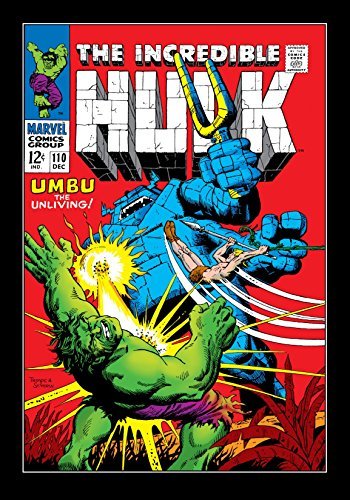
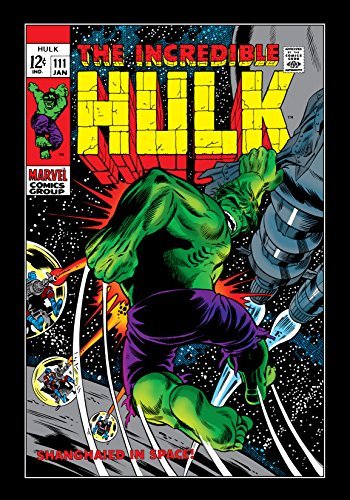
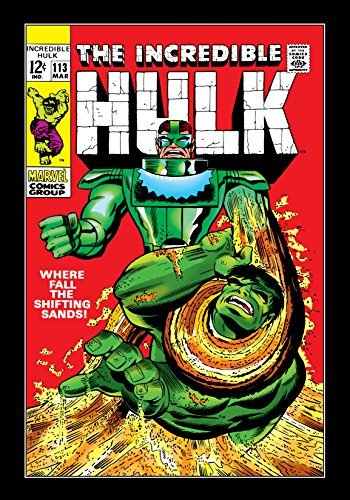
Books in series

Incredible Hulk (1962-1999) #110
1968

Incredible Hulk (1962-1999) #111
1969

Incredible Hulk (1962-1999) #113
1969
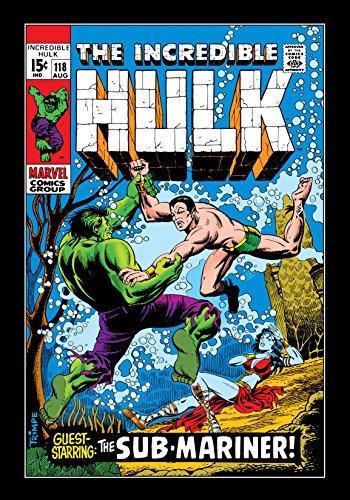
Incredible Hulk (1962-1999) #118
1969
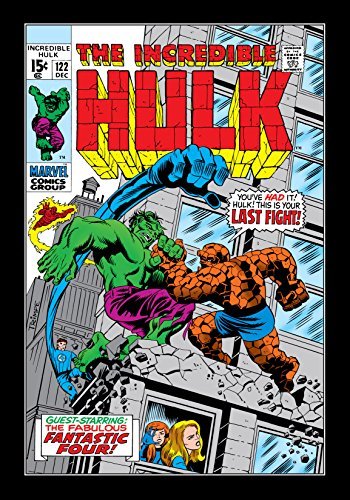
Incredible Hulk (1962-1999) #122
1969
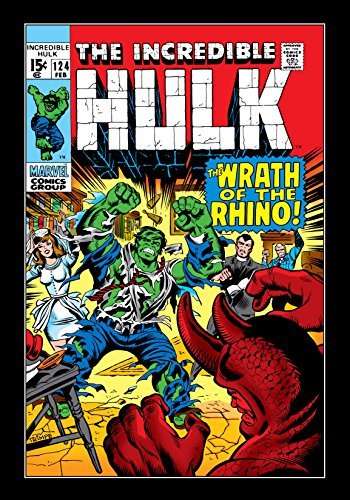
Incredible Hulk (1962-1999) #124
1970
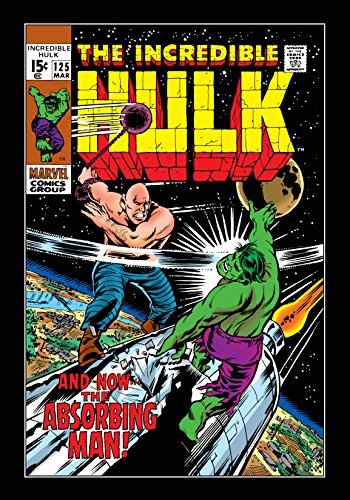
Incredible Hulk (1962-1999) #125
1970
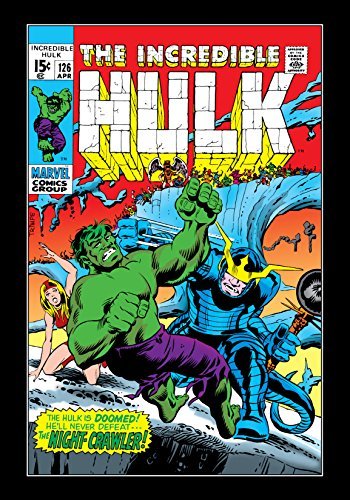
Incredible Hulk (1962-1999) #126
1970

Incredible Hulk (1962-1999) #127
1970
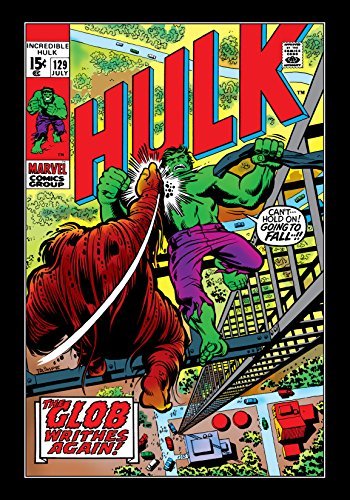
Incredible Hulk (1962-1999) #129
1970

Incredible Hulk (1962-1999) #132
1970
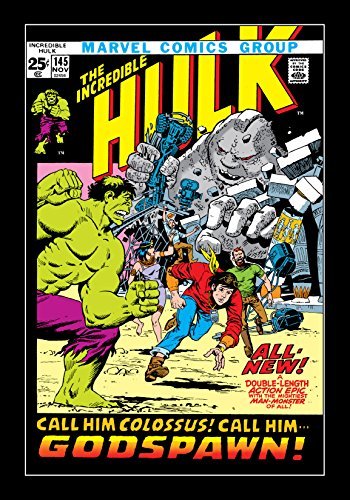
Incredible Hulk (1962-1999) #145
2016
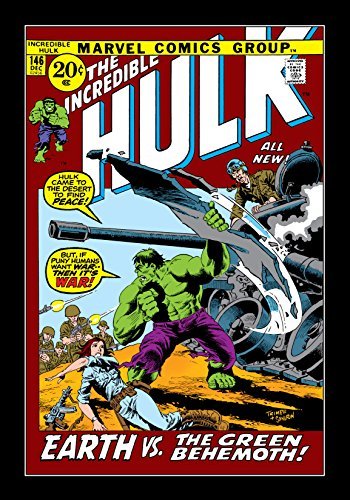
Incredible Hulk (1962-1999) #146
2016
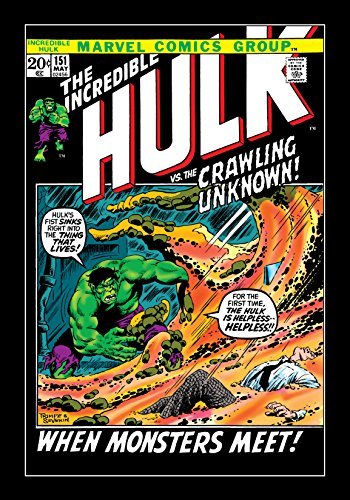
Incredible Hulk (1962-1999) #151
1972
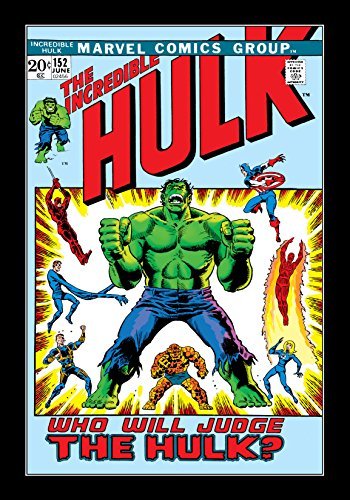
Incredible Hulk (1962-1999) #152
2016
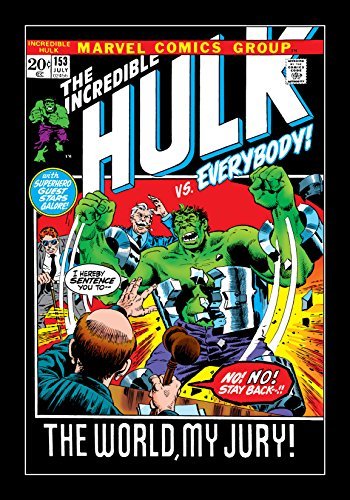
Incredible Hulk (1962-1999) #153
2016
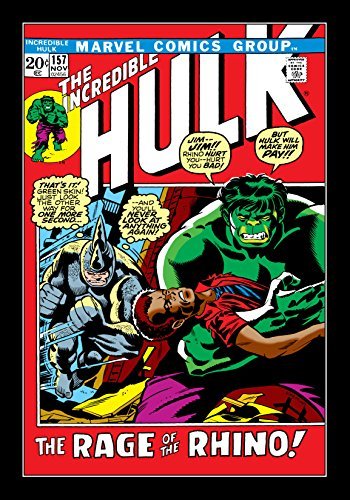
Incredible Hulk (1962-1999) #157
1972
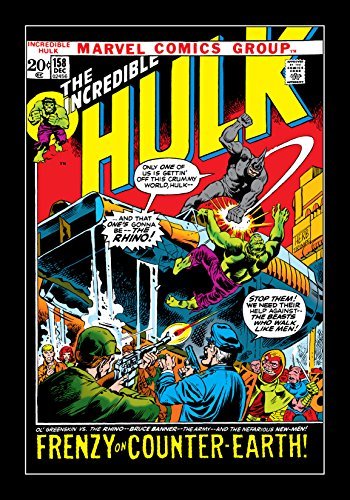
Incredible Hulk (1962-1999) #158
2016
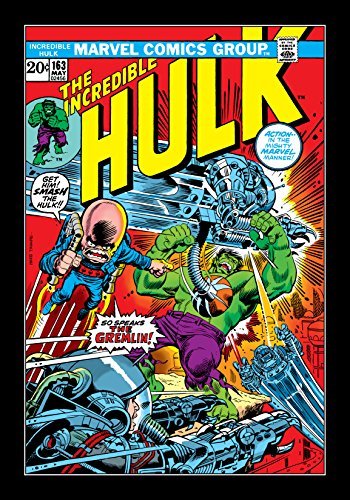
Incredible Hulk (1962-1999) #163
2016
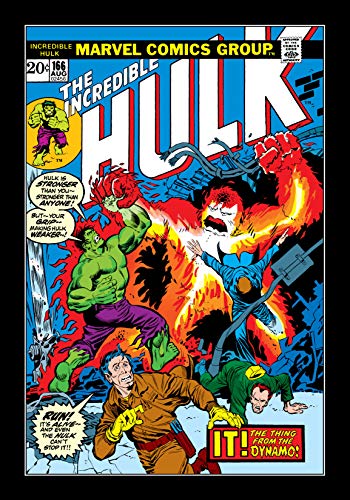
Incredible Hulk (1962-1999) #166
2016
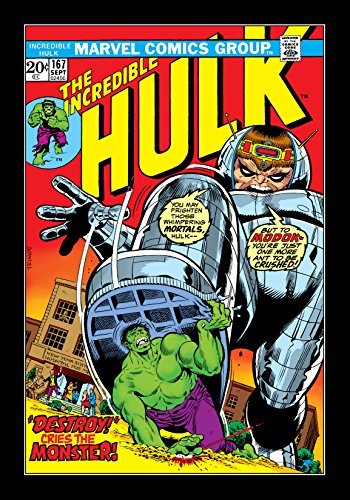
Incredible Hulk (1962-1999) #167
2016
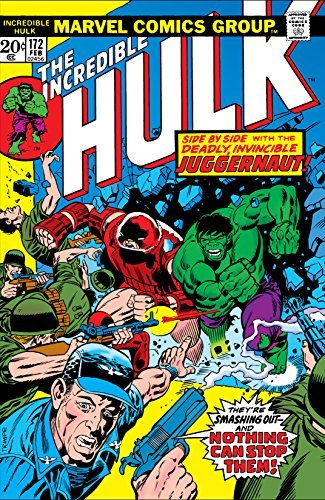
Incredible Hulk (1962-1999) #172
1974
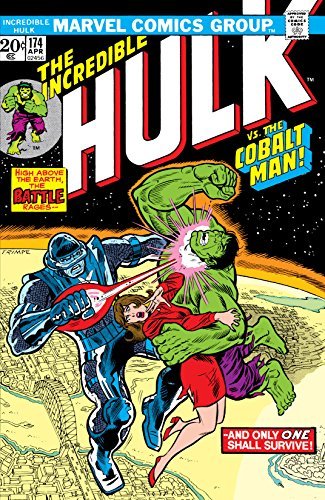
Incredible Hulk (1962-1999) #174
2016
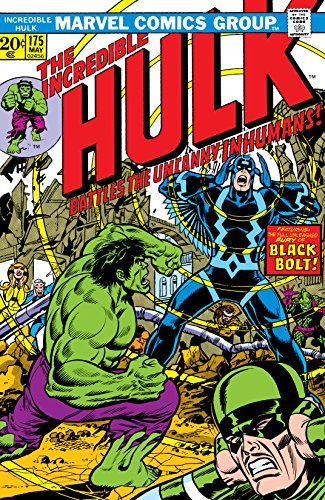
Incredible Hulk (1962-1999) #175
2016
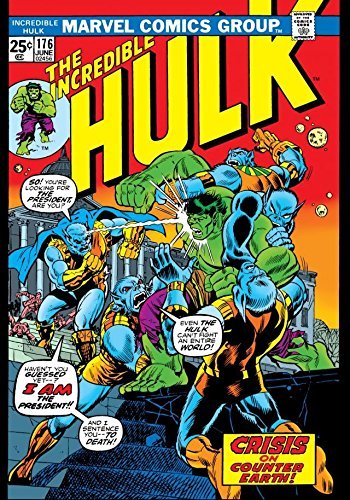
Incredible Hulk (1962-1999) #176
2014
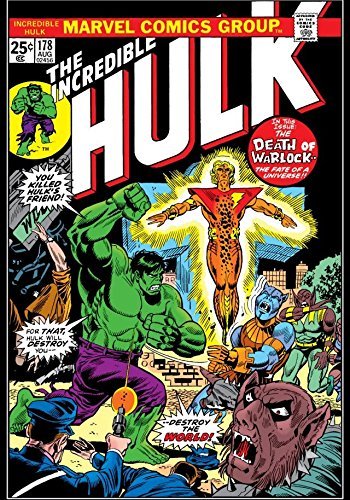
Incredible Hulk (1962-1999) #178
2014

Incredible Hulk (1962-1999) #181
1974
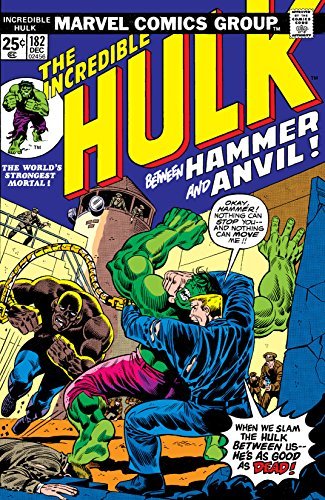
Incredible Hulk (1962-1999) #182
1974
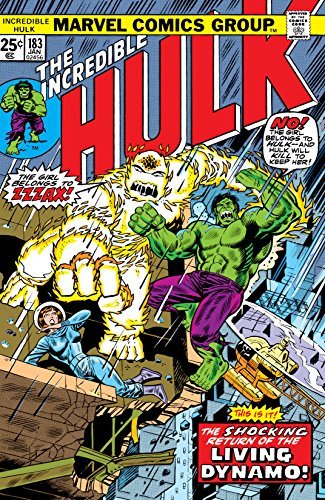
Incredible Hulk (1962-1999) #183
1975
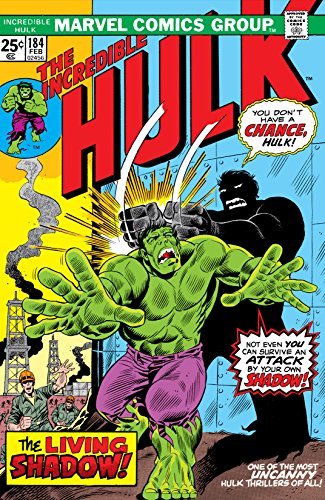
Incredible Hulk (1962-1999) #184
1975
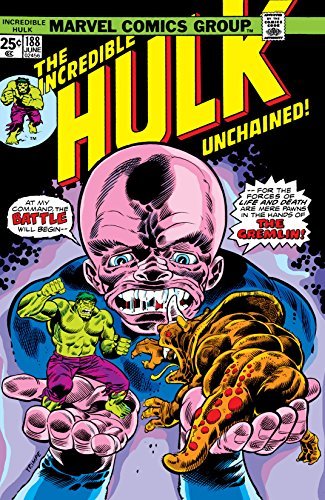
Incredible Hulk (1962-1999) #188
1975
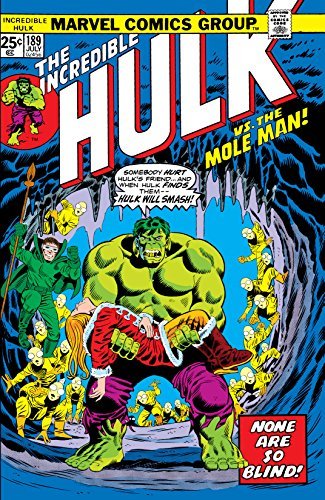
Incredible Hulk (1962-1999) #189
1975
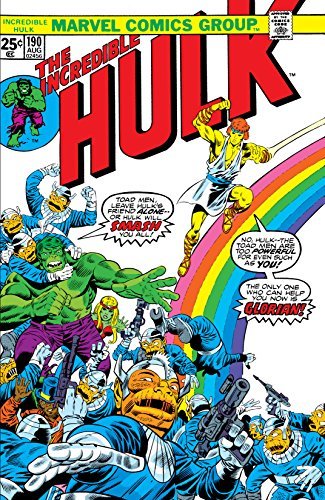
Incredible Hulk (1962-1999) #190
1975
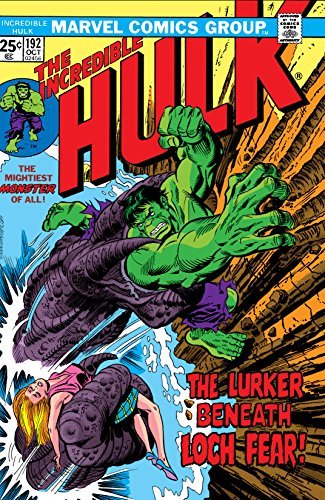
Incredible Hulk (1962-1999) #192
1975
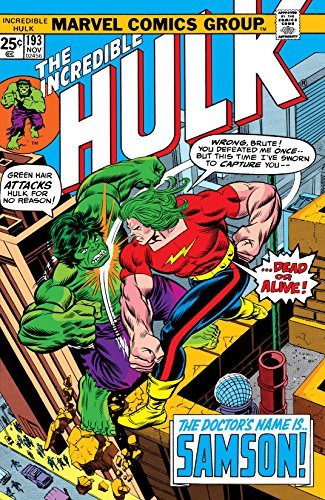
Incredible Hulk (1962-1999) #193
1975
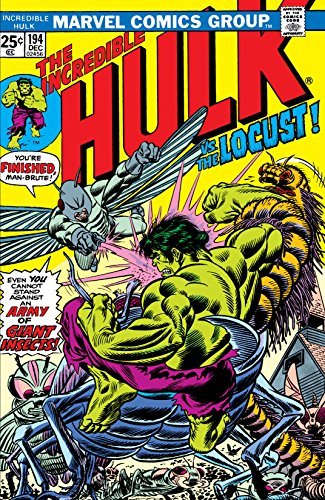
Incredible Hulk (1962-1999) #194
1975
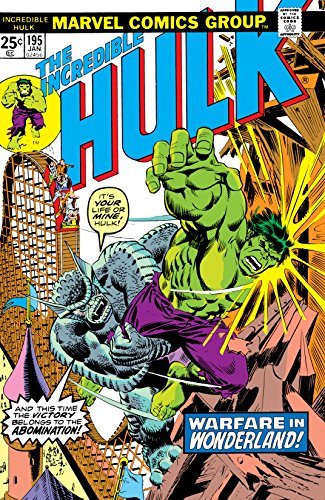
Incredible Hulk (1962-1999) #195
1976
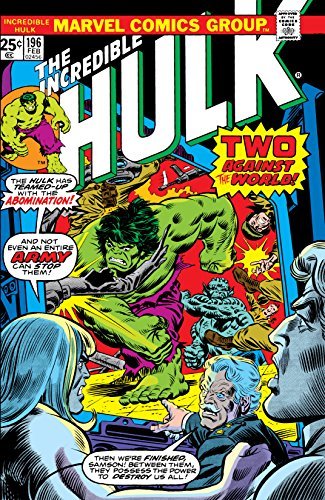
Incredible Hulk (1962-1999) #196
1968
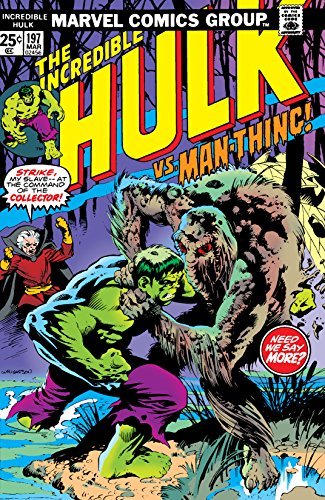
Incredible Hulk (1962-1999) #197
1976
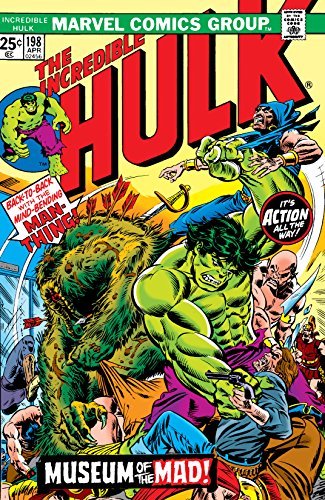
Incredible Hulk (1962-1999) #198
1976
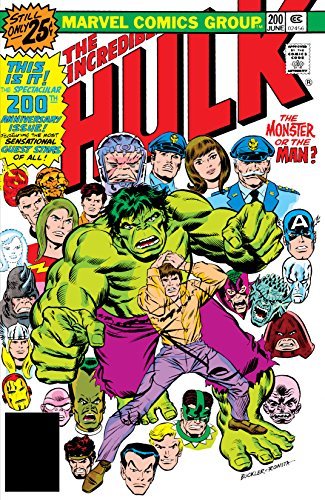
Incredible Hulk (1962-1999) #200
1976
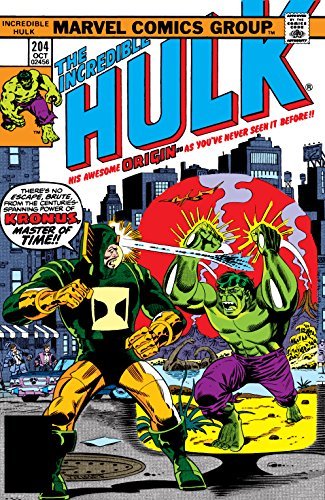
Incredible Hulk (1962-1999) #204
1976
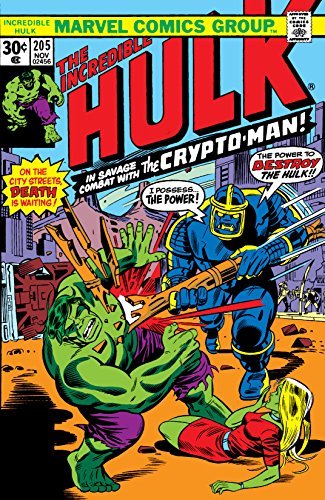
Incredible Hulk (1962-1999) #205
1976
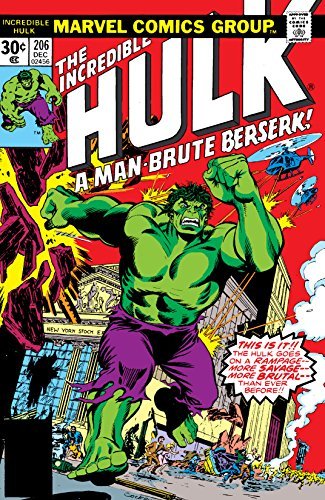
Incredible Hulk (1962-1999) #206
1976
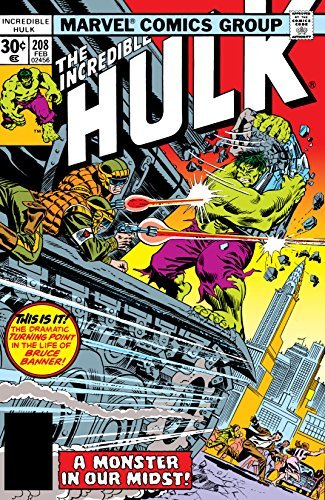
Incredible Hulk (1962-1999) #208
1977
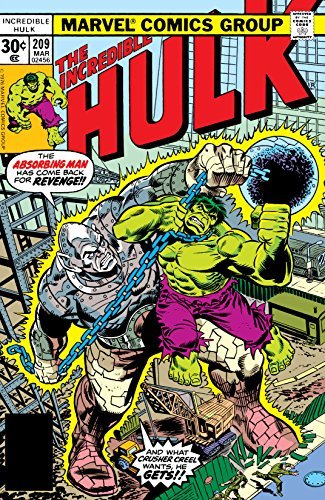
Incredible Hulk (1962-1999) #209
1977
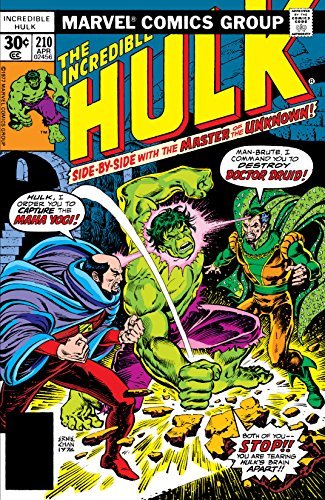
Incredible Hulk (1962-1999) #210
1977
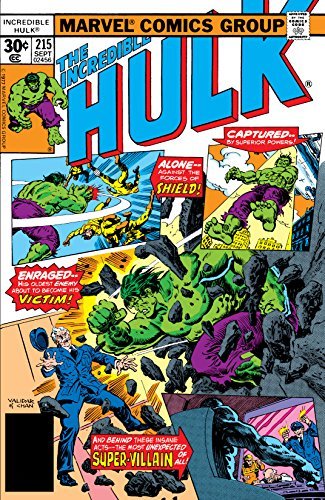
Incredible Hulk (1962-1999) #215
1977
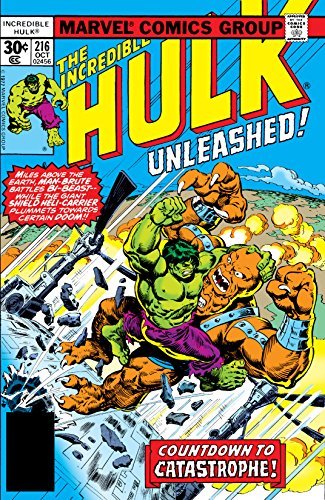
Incredible Hulk (1962-1999) #216
1977
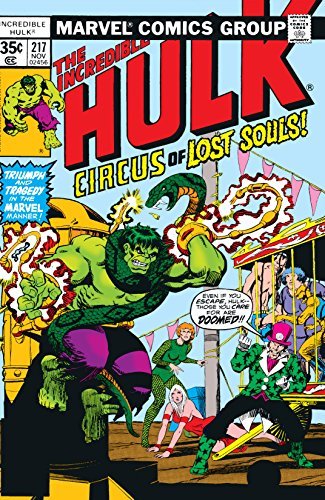
Incredible Hulk (1962-1999) #217
1977
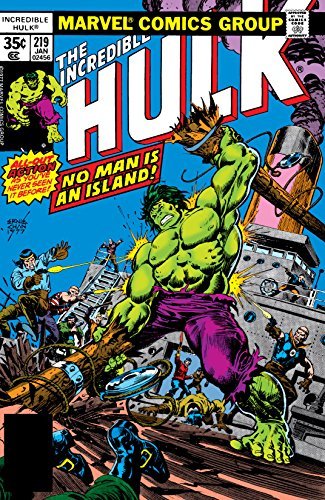
Incredible Hulk (1962-1999) #219
1978
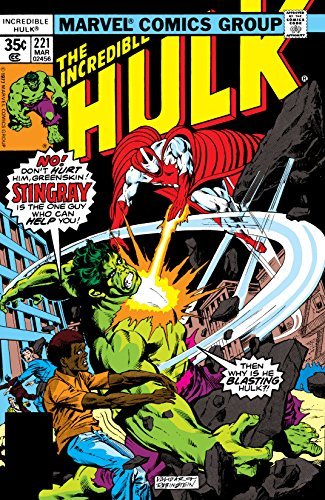
Incredible Hulk (1962-1999) #221
1978
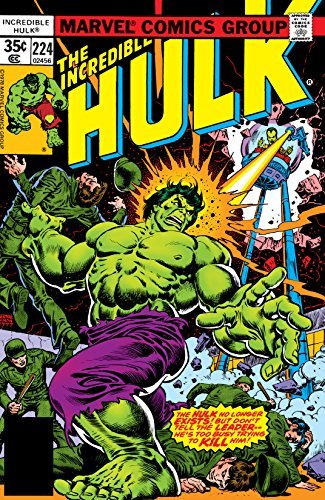
Incredible Hulk (1962-1999) #224
1978

Doctor Strange Epic Collection, Vol. 3
A Separate Reality
2016
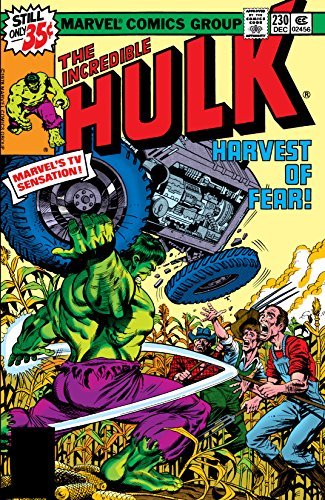
Incredible Hulk (1962-1999) #230
2016
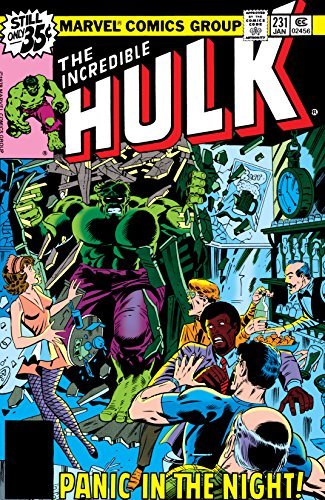
Incredible Hulk (1962-1999) #231
2016
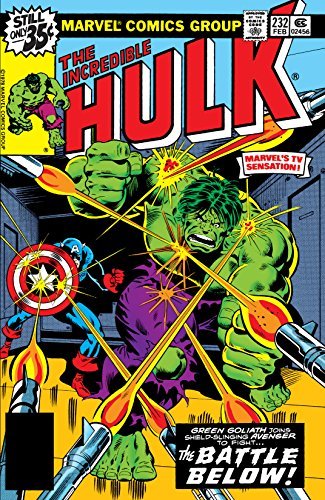
Incredible Hulk (1962-1999) #232
1979
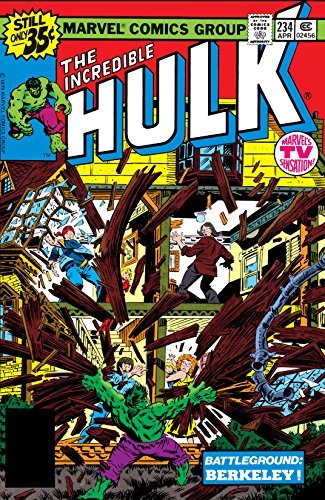
Incredible Hulk (1962-1999) #234
1979

Avengers
Kang - Time And Time Again
2005
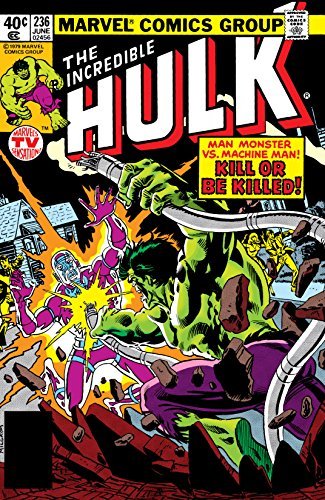
Incredible Hulk (1962-1999) #236
1979
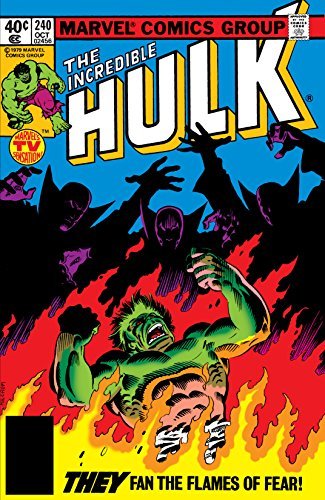
Incredible Hulk (1962-1999) #240
1979
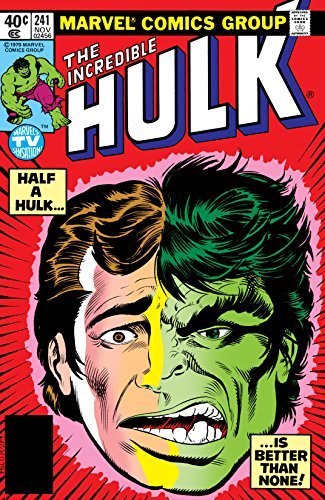
Incredible Hulk (1962-1999) #241
2016
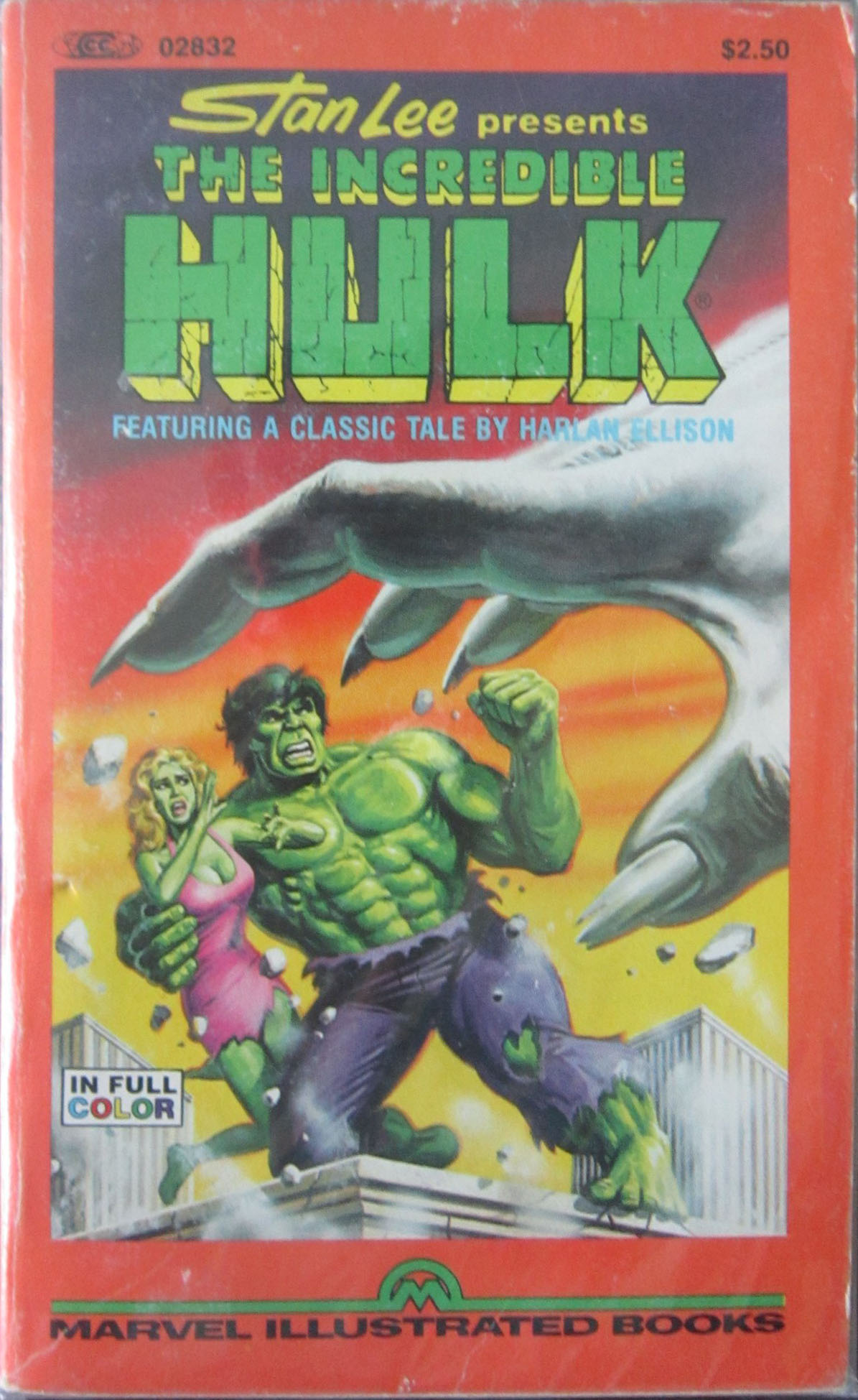
Stan Lee Presents
The Incredible Hulk
1982
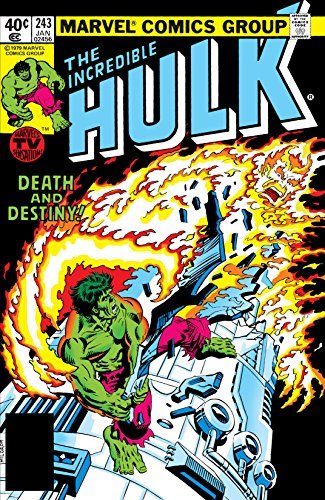
Incredible Hulk (1962-1999) #243
1968
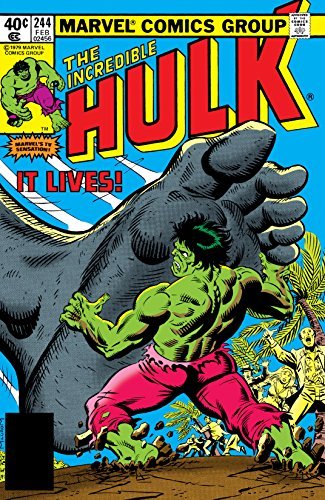
Incredible Hulk (1962-1999) #244
2016
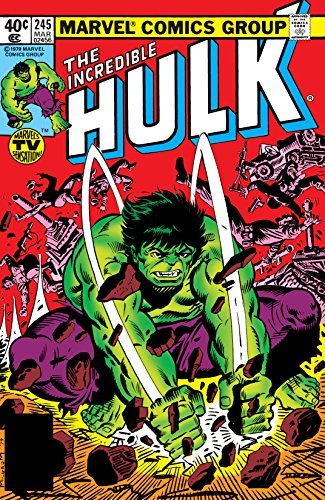
Incredible Hulk (1962-1999) #245
1968
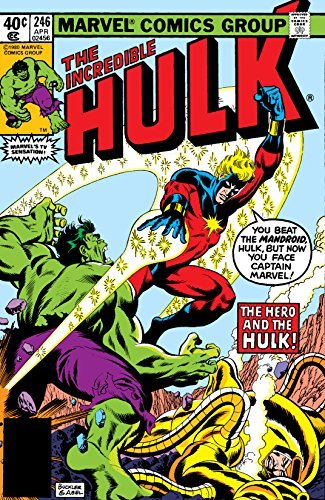
Incredible Hulk (1962-1999) #246
1980
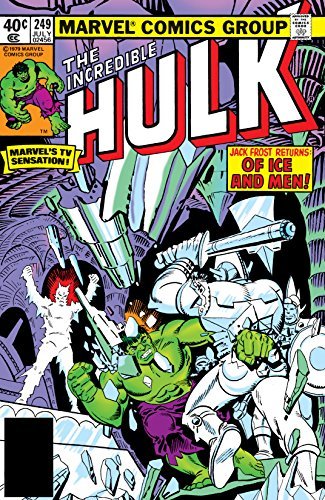
Incredible Hulk (1962-1999) #249
1980
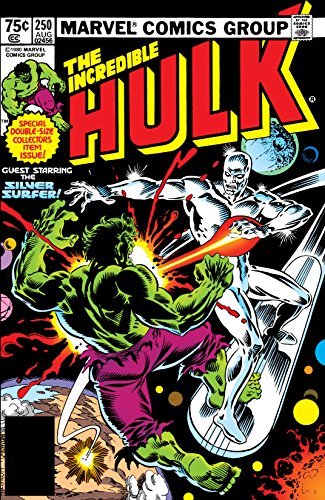
Incredible Hulk (1962-1999) #250
1980
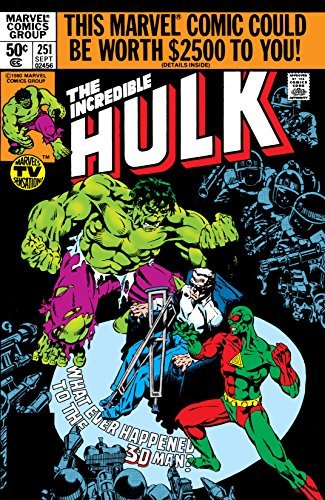
Incredible Hulk (1962-1999) #251
2016

Marvel Masterworks
The X-Men, Vol. 7
2008
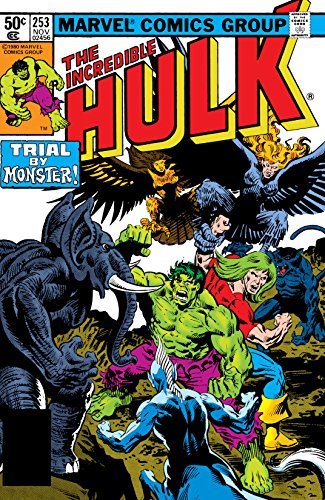
Incredible Hulk (1962-1999) #253
1980
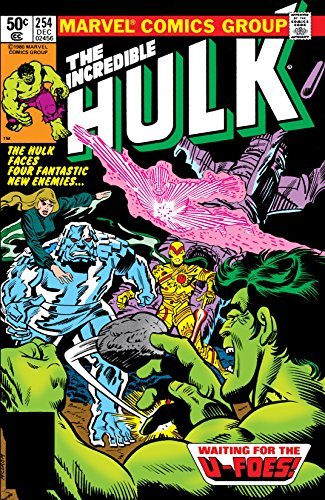
Incredible Hulk (1962-1999) #254
1980
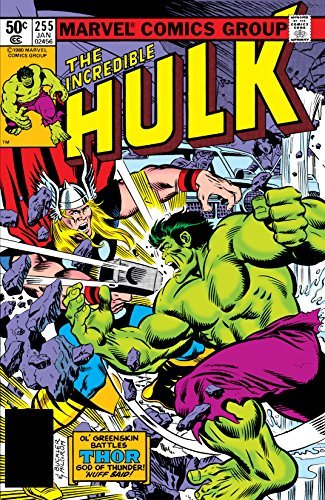
Incredible Hulk (1962-1999) #255
1981
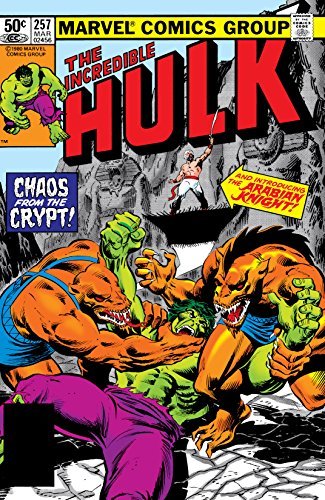
Incredible Hulk (1962-1999) #257
2016
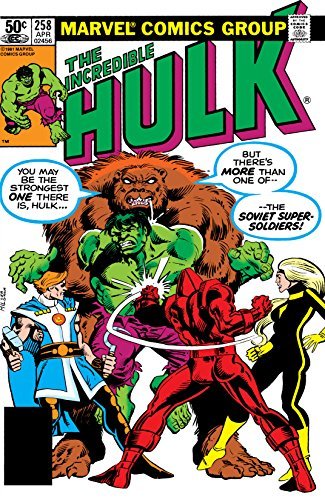
Incredible Hulk (1962-1999) #258
1981
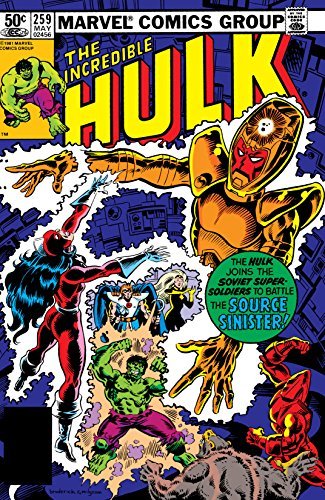
Incredible Hulk (1962-1999) #259
1981
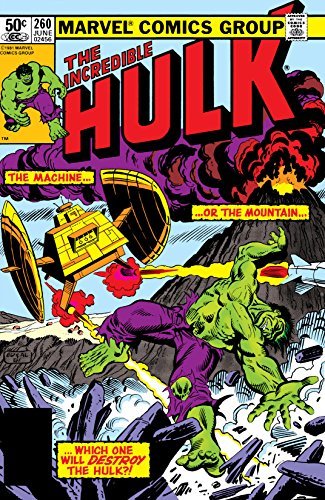
Incredible Hulk (1962-1999) #260
2016
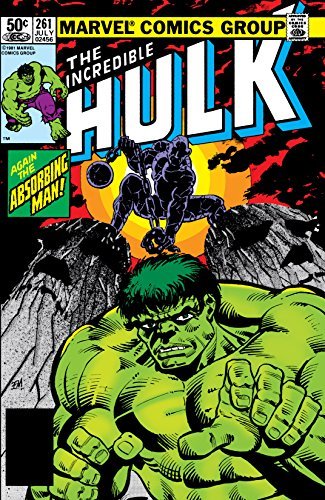
Incredible Hulk (1962-1999) #261
1981
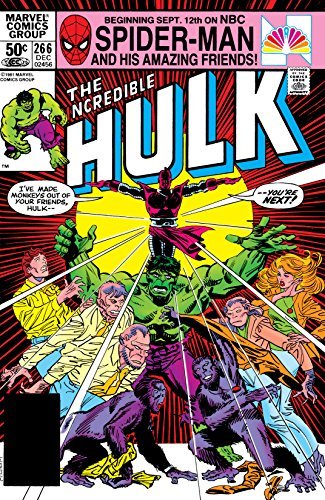
Incredible Hulk (1962-1999) #266
2016
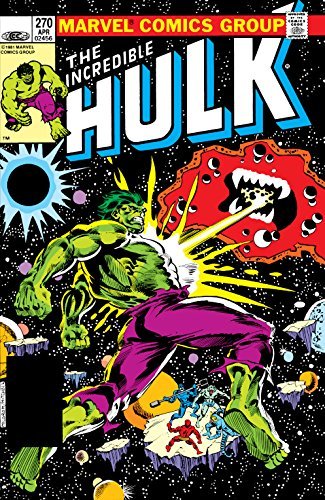
Incredible Hulk (1962-1999) #270
2017

Incredible Hulk
Beauty and the Behemoth
1998
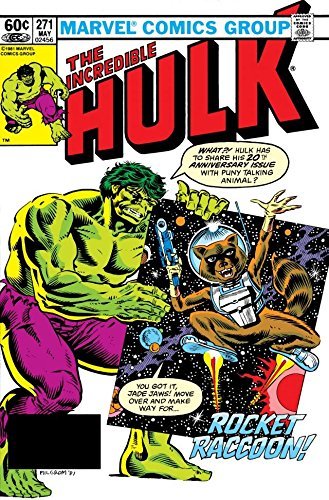
Incredible Hulk (1962-1999) #271
1982
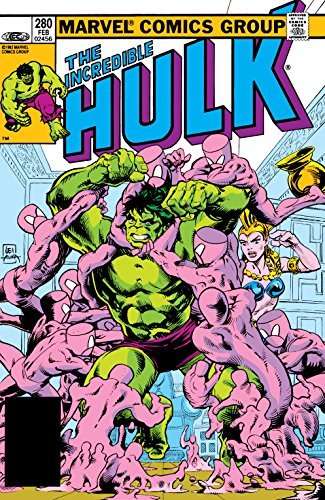
Incredible Hulk (1962-1999) #280
2017
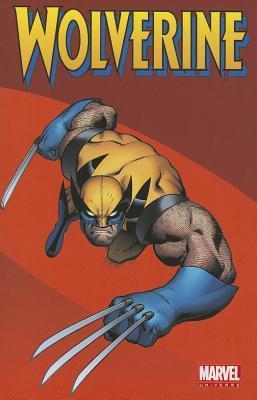
Marvel Universe
Wolverine
2013

X-Men Famous Firsts
1995

The 100 Greatest Marvels of All Time
#17-14
2001
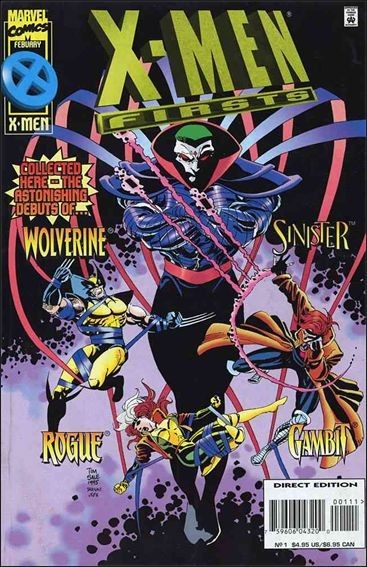
X-Men Firsts
1996

The Best of Wolverine, Vol. 1
2004
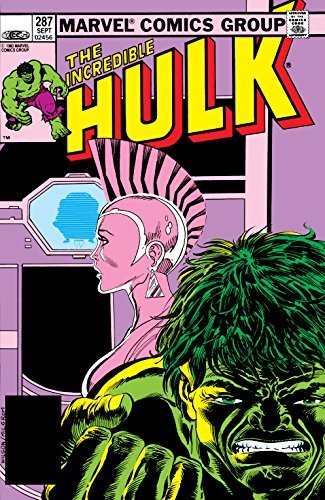
Incredible Hulk (1962-1999) #287
1968
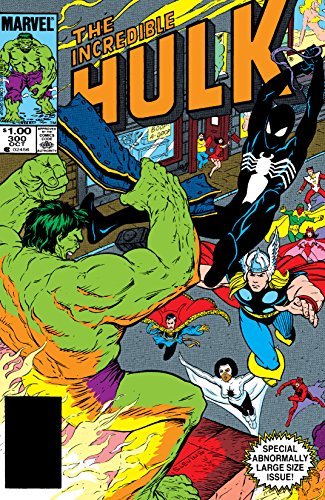
Incredible Hulk (1962-1999) #300
1984
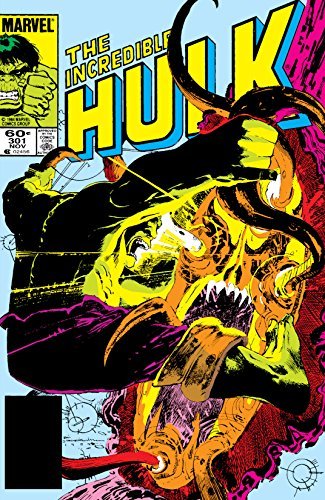
Incredible Hulk (1962-1999) #301
1962
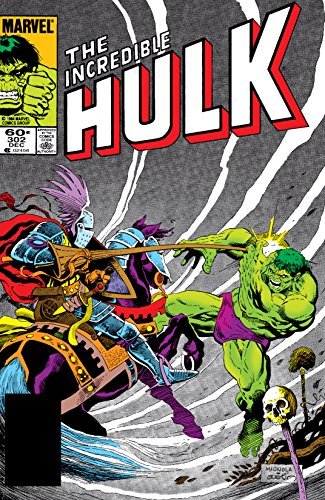
Incredible Hulk (1962-1999) #302
2016
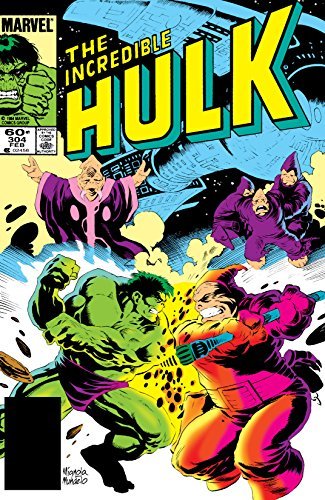
Incredible Hulk (1962-1999) #304
1985
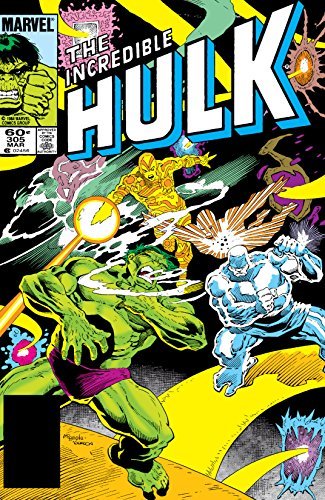
Incredible Hulk (1962-1999) #305
1985
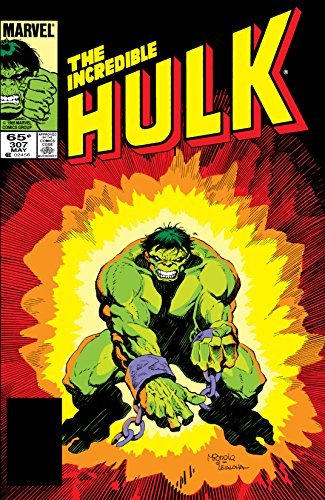
Incredible Hulk (1962-1999) #307
2016
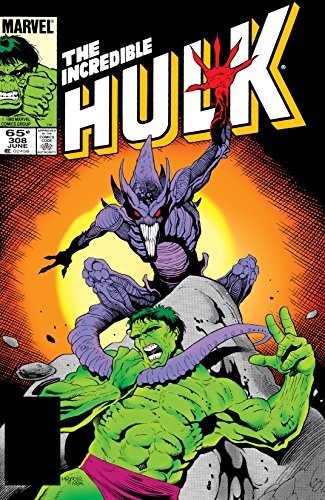
Incredible Hulk (1962-1999) #308
1985
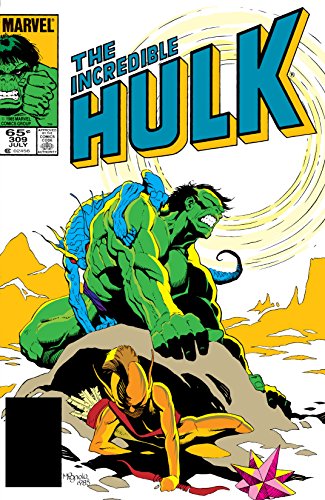
Incredible Hulk (1962-1999) #309
2000
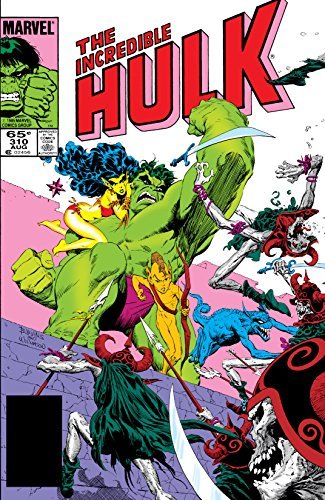
Incredible Hulk (1962-1999) #310
2000
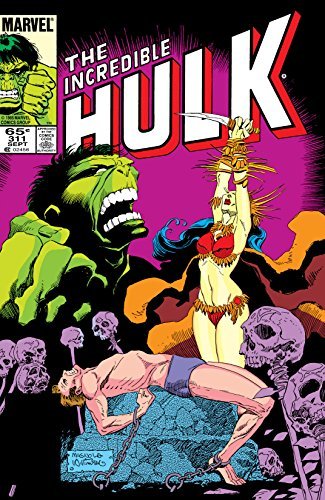
Incredible Hulk (1962-1999) #311
1968
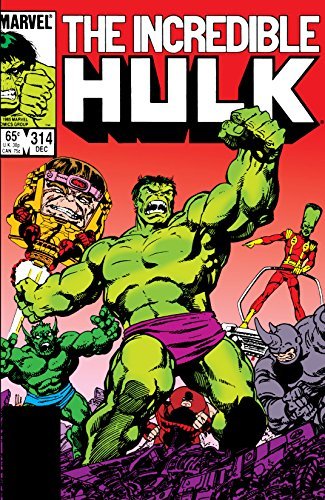
Incredible Hulk (1962-1999) #314
2016
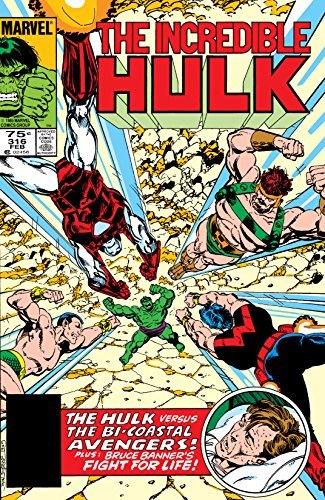
Incredible Hulk (1962-1999) #316
1986
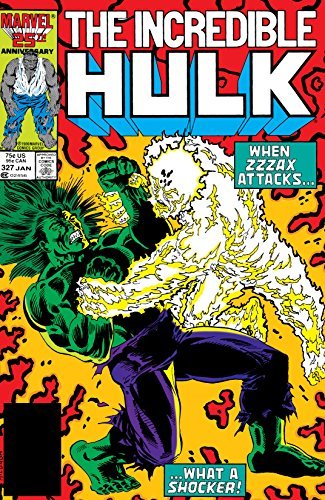
Incredible Hulk (1962-1999) #327
2016
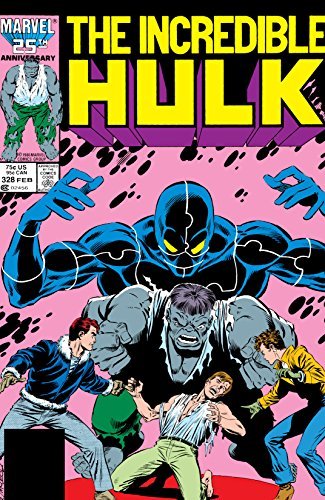
Incredible Hulk (1962-1999) #328
2016
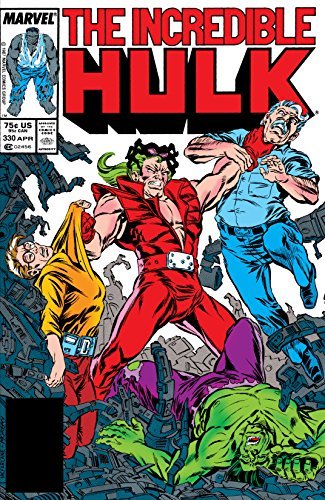
Incredible Hulk (1962-1999) #330
2016
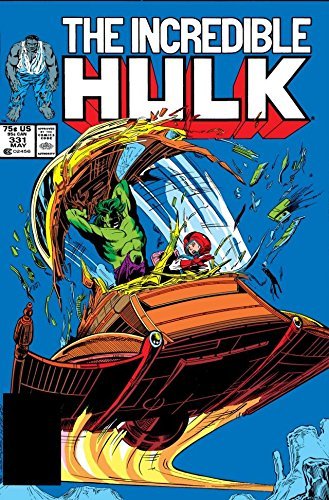
Incredible Hulk (1962-1999) #331
1987
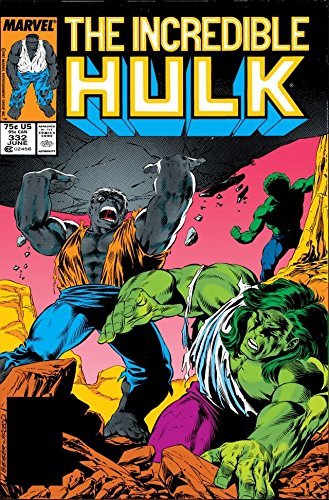
Incredible Hulk (1962-1999) #332
1987
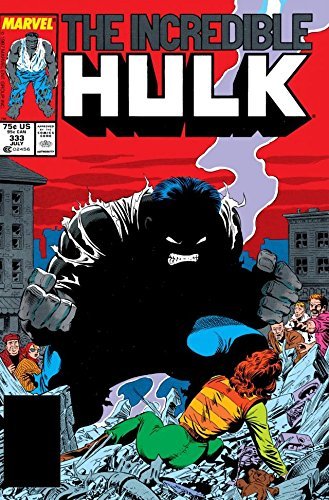
Incredible Hulk (1962-1999) #333
1987
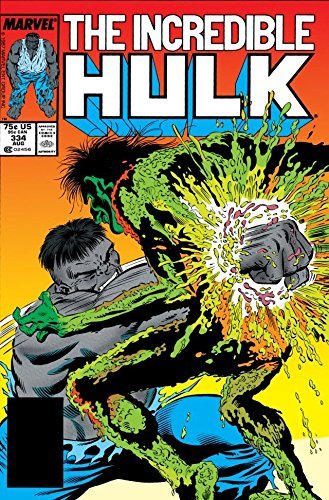
Incredible Hulk (1962-1999) #334
1987
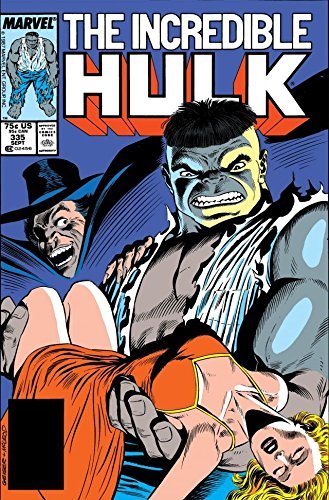
Incredible Hulk (1962-1999) #335
1987
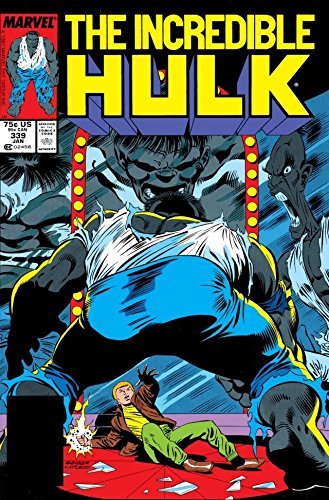
Incredible Hulk (1962-1999) #339
1988
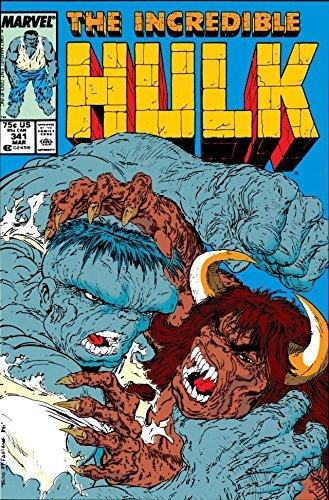
Incredible Hulk (1962-1999) #341
1988
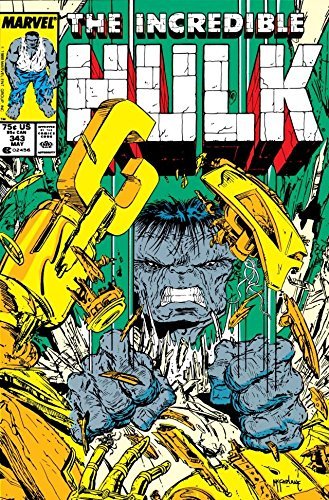
Incredible Hulk (1962-1999) #343
2014
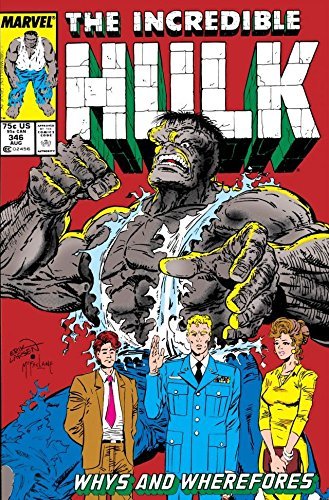
Incredible Hulk (1962-1999) #346
1988
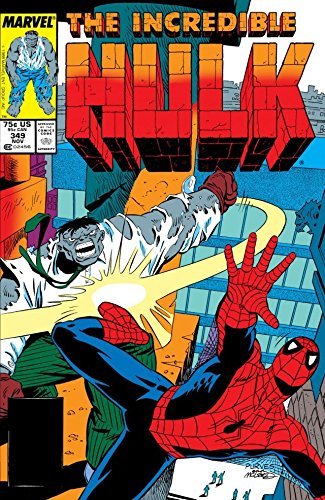
Incredible Hulk (1962-1999) #349
1962
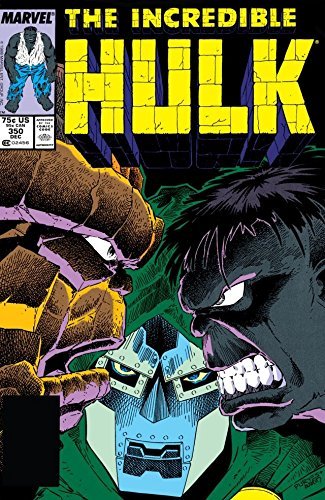
Incredible Hulk (1962-1999) #350
1988
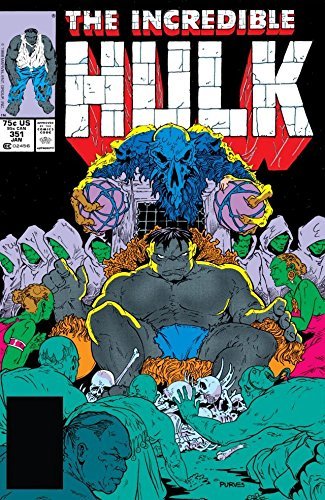
Incredible Hulk (1962-1999) #351
2014
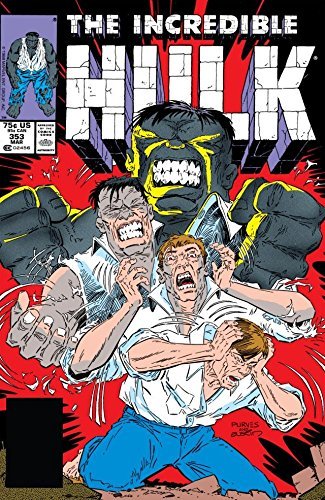
Incredible Hulk (1962-1999) #353
2014
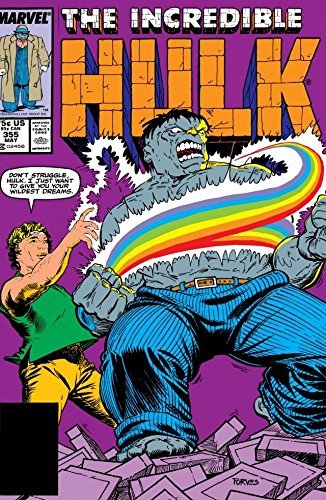
Incredible Hulk (1962-1999) #355
2014
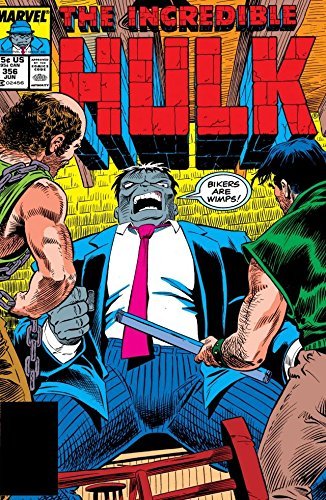
Incredible Hulk (1962-1999) #356
2014
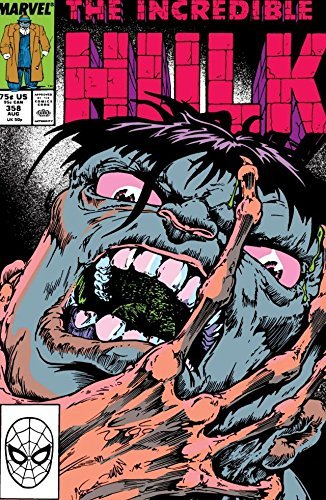
Incredible Hulk (1962-1999) #358
2014
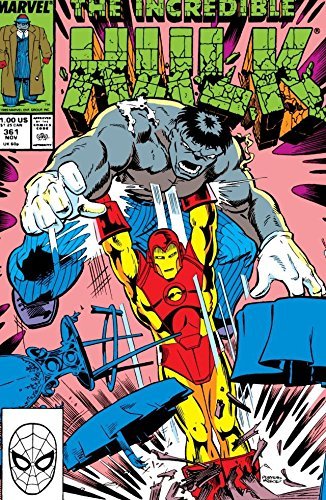
Incredible Hulk (1962-1999) #361
1989
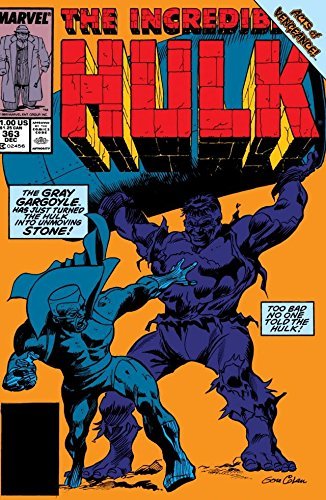
Incredible Hulk (1962-1999) #363
2014
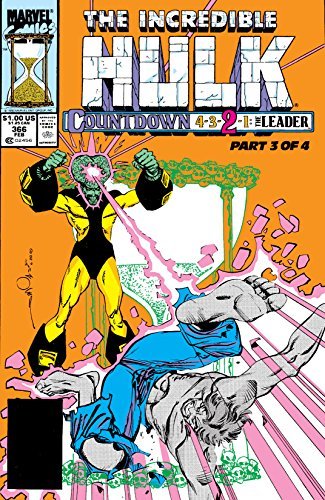
Incredible Hulk (1962-1999) #366
2016
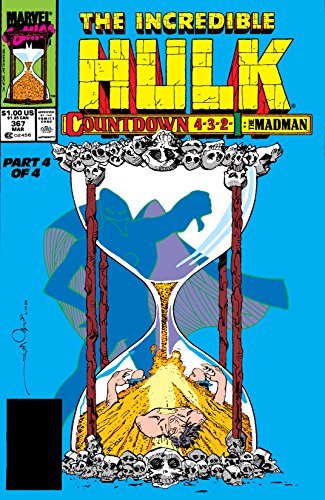
Incredible Hulk (1962-1999) #367
2016
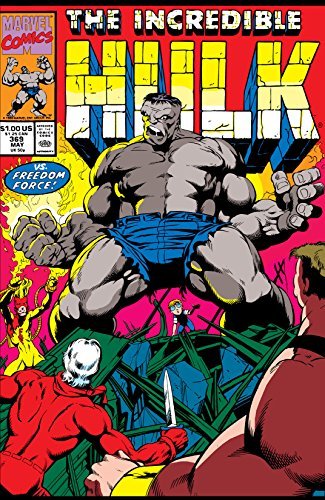
Incredible Hulk (1962-1999) #369
2000
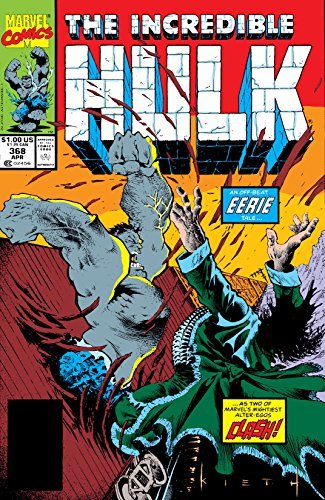
Incredible Hulk (1962-1999) #368
1990
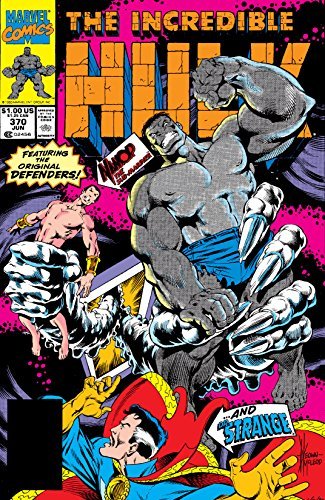
Incredible Hulk (1962-1999) #370
2016
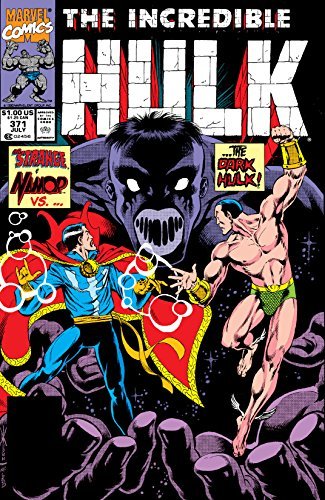
Incredible Hulk (1962-1999) #371
2016

Incredible Hulk
Transformations
1997
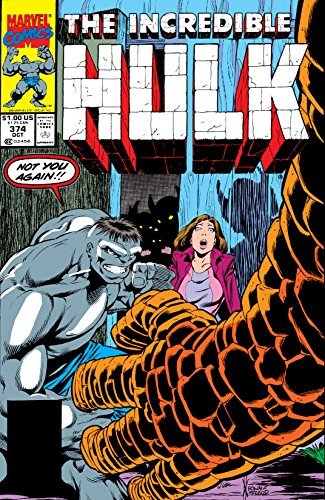
Incredible Hulk (1962-1999) #374
2016
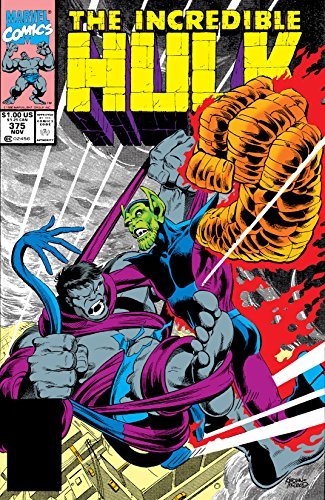
Incredible Hulk (1962-1999) #375
2016
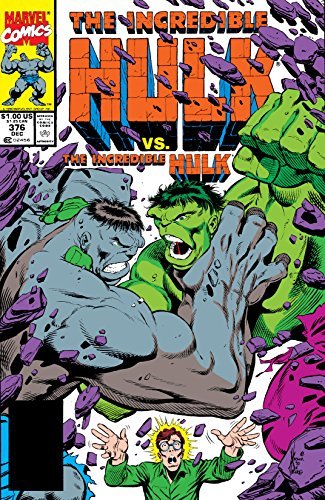
Incredible Hulk (1962-1999) #376
2016
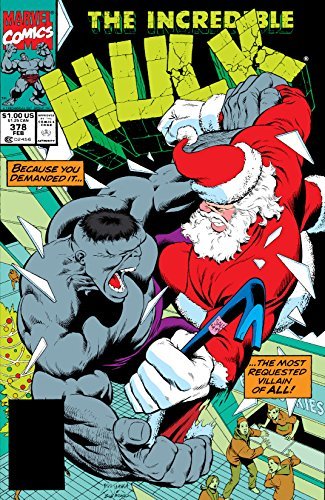
Incredible Hulk (1962-1999) #378
2016
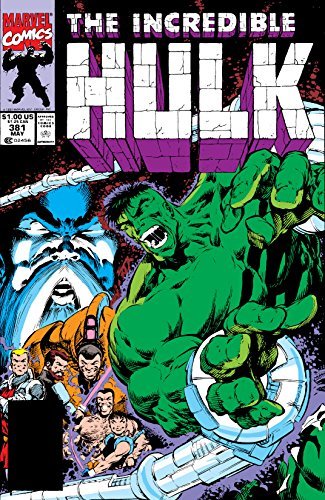
Incredible Hulk (1962-1999) #381
1991
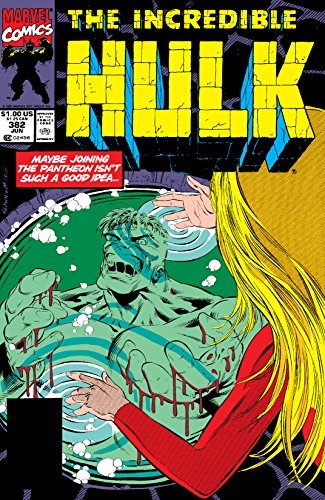
Incredible Hulk (1962-1999) #382
2016
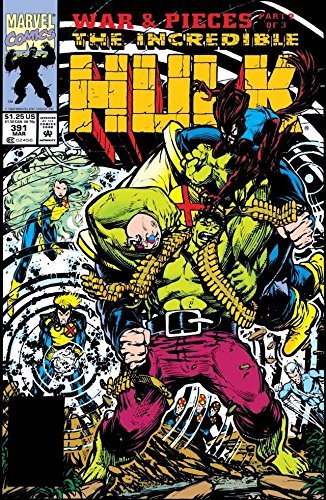
Incredible Hulk (1962-1999) #391
2014
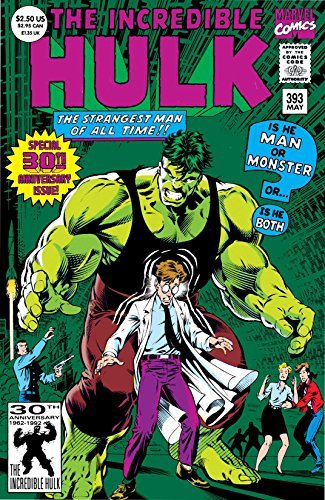
Incredible Hulk (1962-1999) #393
1992
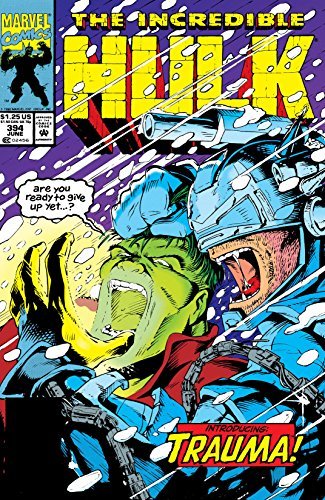
Incredible Hulk (1962-1999) #394
1992
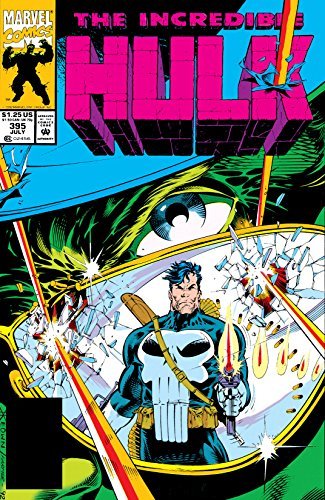
Incredible Hulk (1962-1999) #395
2016
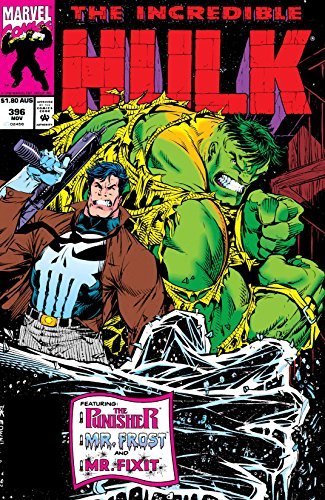
Incredible Hulk (1962-1999) #396
2016
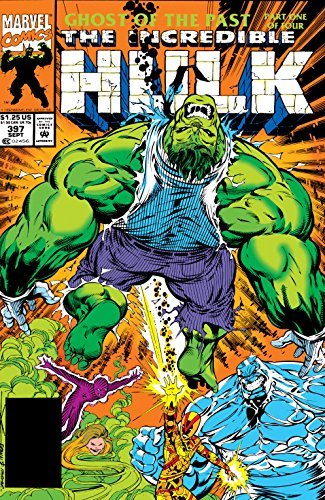
Incredible Hulk (1962-1999) #397
2015
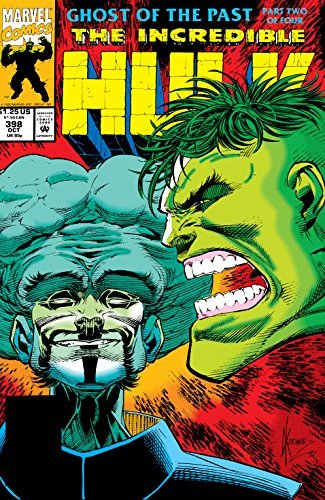
Incredible Hulk (1962-1999) #398
2015
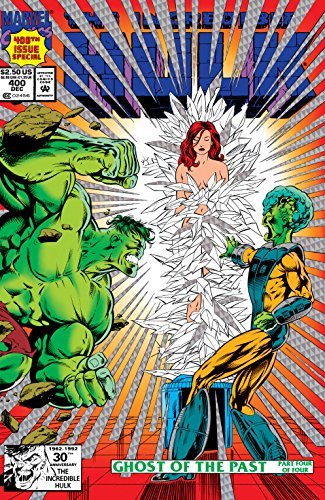
Incredible Hulk (1962-1999) #400
2015
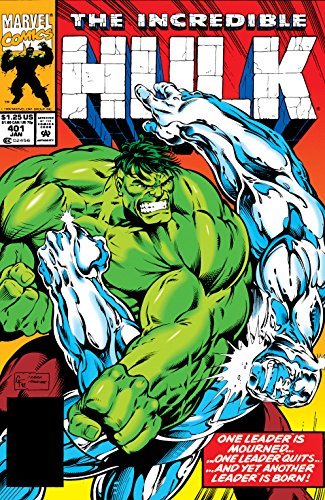
Incredible Hulk (1962-1999) #401
2015
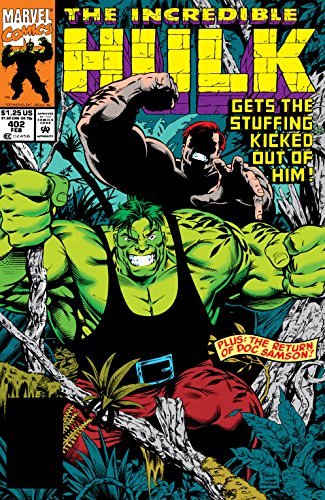
Incredible Hulk (1962-1999) #402
2015
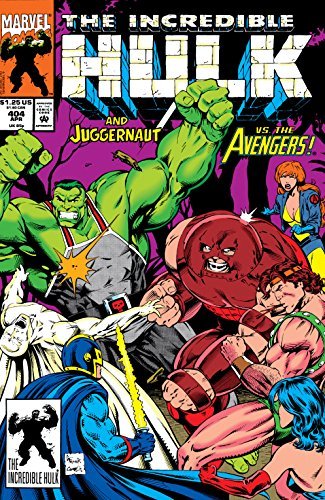
Incredible Hulk (1962-1999) #404
2015
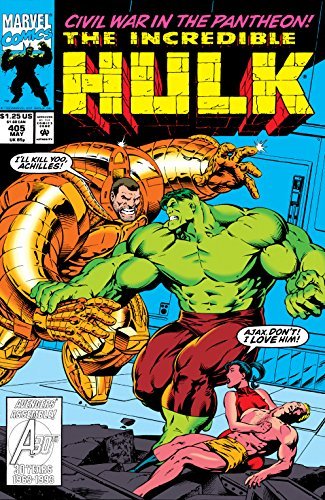
Incredible Hulk (1962-1999) #405
1962
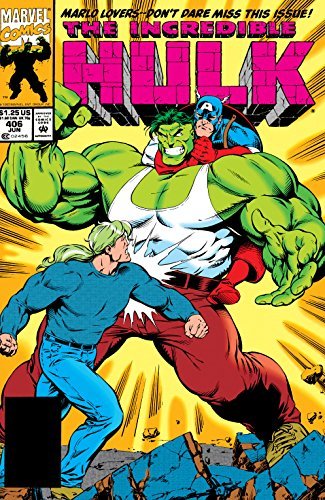
Incredible Hulk (1962-1999) #406
2015
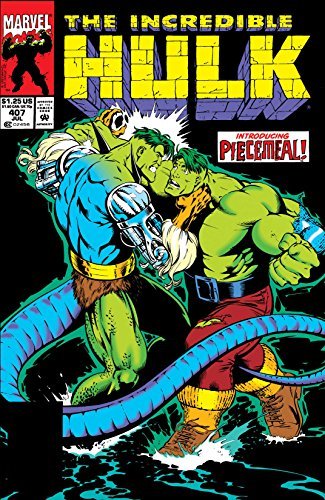
Incredible Hulk (1962-1999) #407
2016
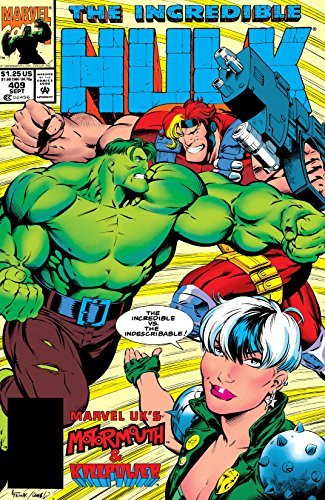
Incredible Hulk (1962-1999) #409
1993
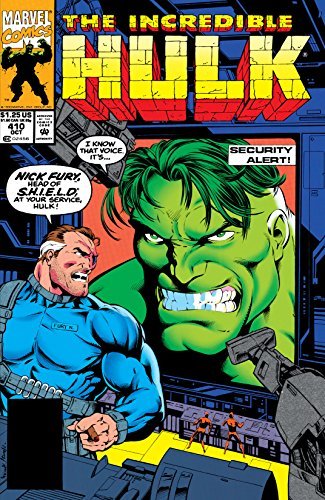
Incredible Hulk (1962-1999) #410
1993
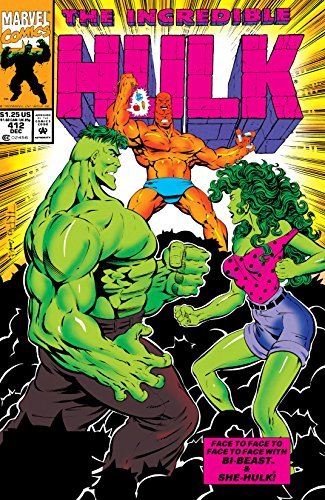
Incredible Hulk (1962-1999) #412
1993
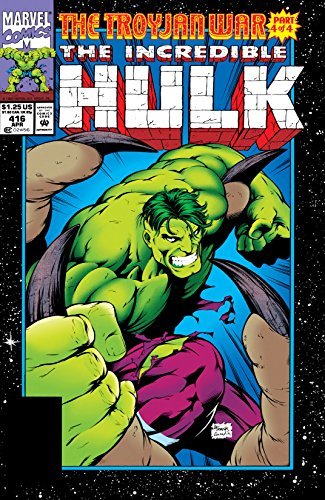
Incredible Hulk (1962-1999) #416
1994
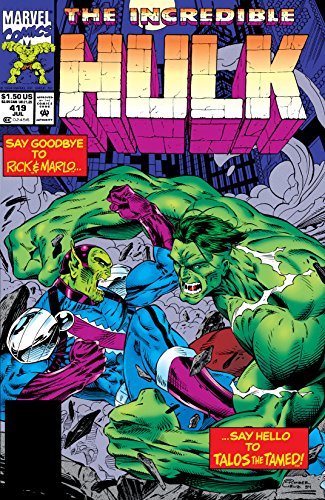
Incredible Hulk (1962-1999) #419
2016
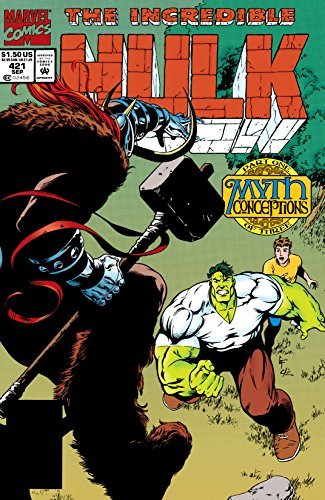
Incredible Hulk (1962-1999) #421
2016
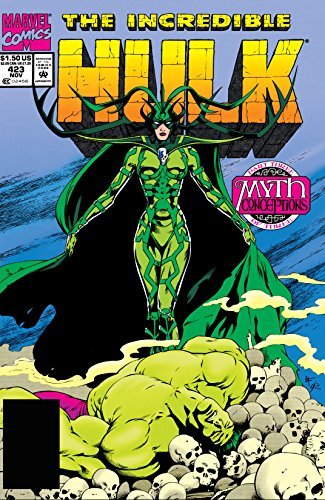
Incredible Hulk (1962-1999) #423
2016
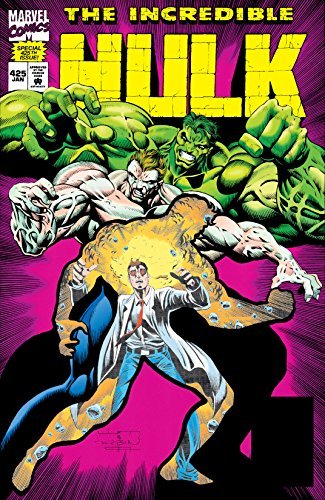
Incredible Hulk (1962-1999) #425
2016
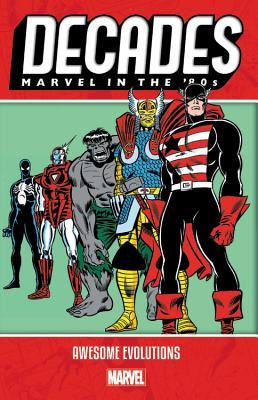
Decades
Marvel in the '80s - Awesome Evolutions
2019
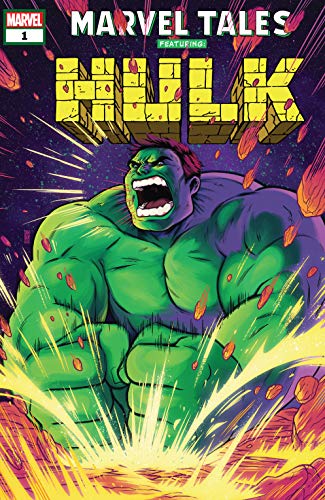
Marvel Tales
Hulk #1
2019
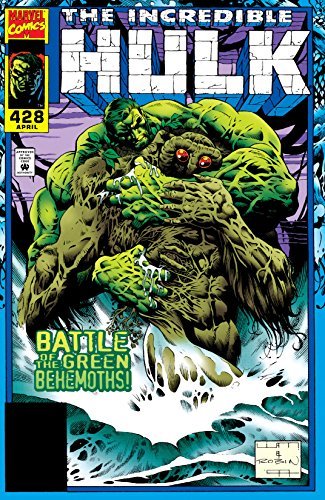
Incredible Hulk (1962-1999) #428
2016
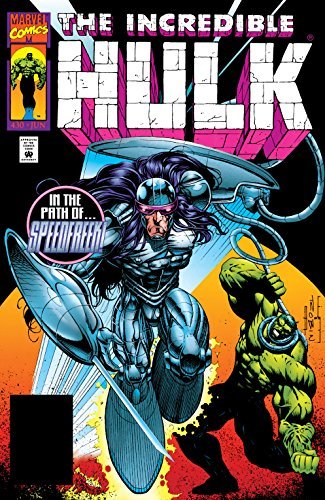
Incredible Hulk (1962-1999) #430
2017
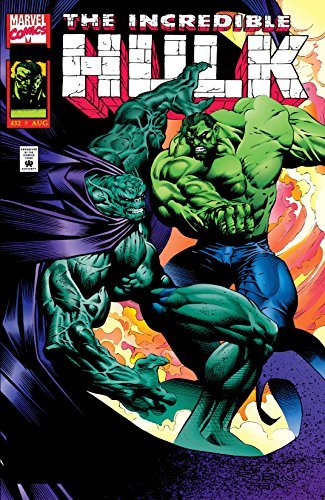
Incredible Hulk (1962-1999) #432
2016
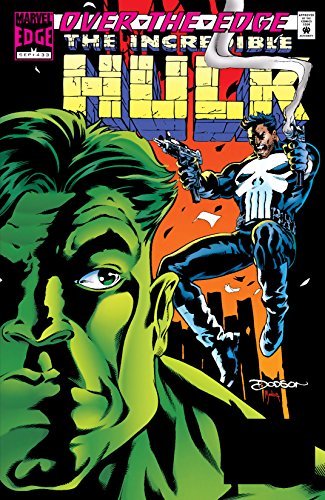
Incredible Hulk (1962-1999) #433
2016
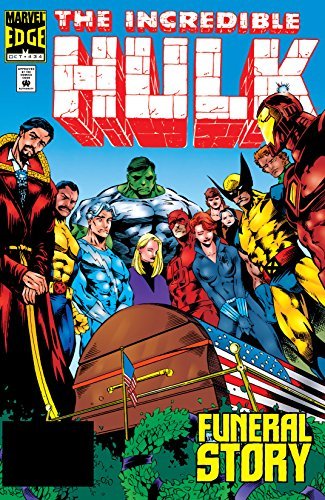
Incredible Hulk (1962-1999) #434
2016
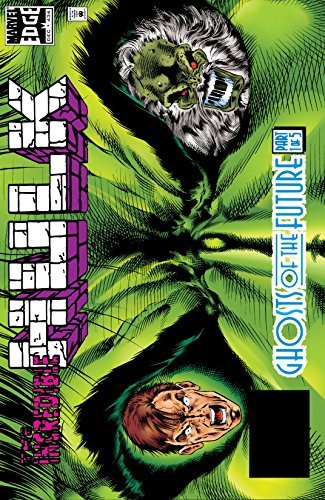
Incredible Hulk (1962-1999) #436
2016
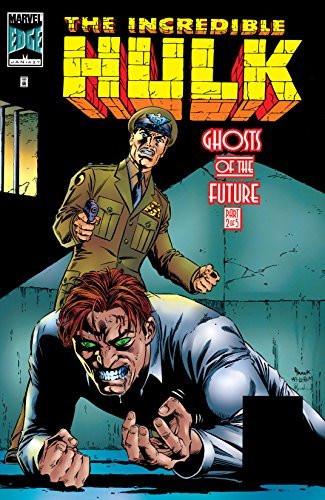
Incredible Hulk (1962-1999) #437
1996
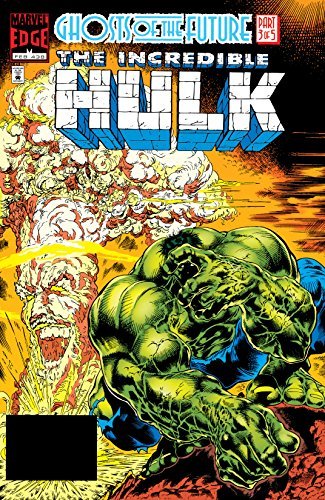
Incredible Hulk (1962-1999) #438
2016
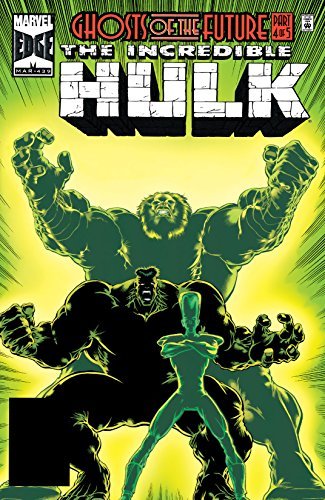
Incredible Hulk (1962-1999) #439
2016
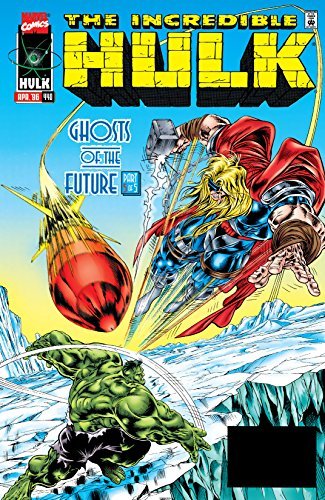
Incredible Hulk (1962-1999) #440
1996
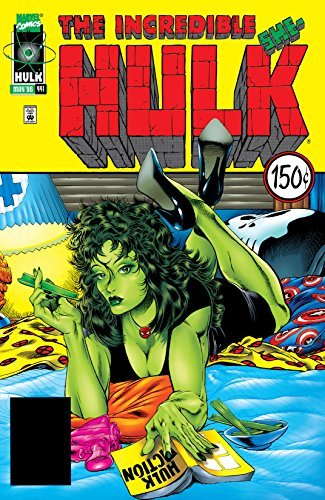
Incredible Hulk (1962-1999) #441
2016
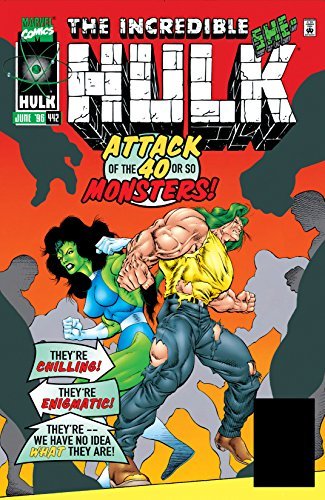
Incredible Hulk (1962-1999) #442
2016
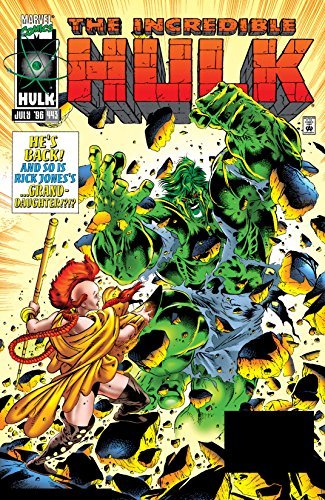
Incredible Hulk (1962-1999) #443
2016
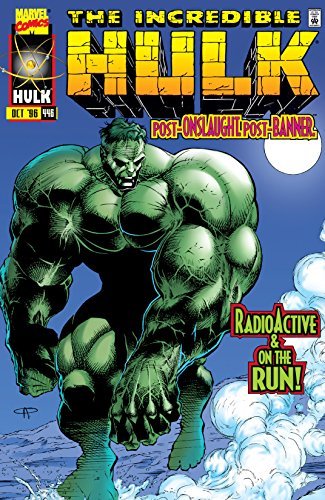
Incredible Hulk (1962-1999) #446
2016
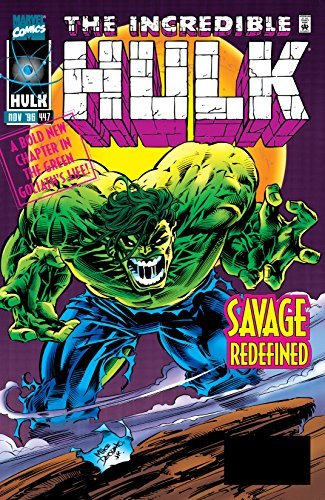
Incredible Hulk (1962-1999) #447
2016
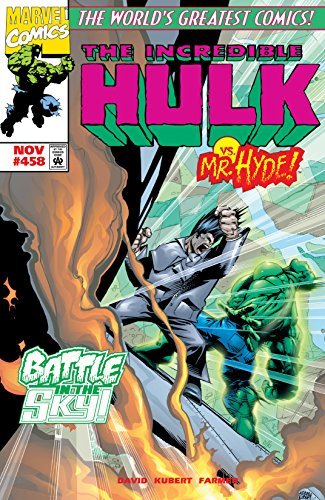
Incredible Hulk (1962-1999) #458
2016
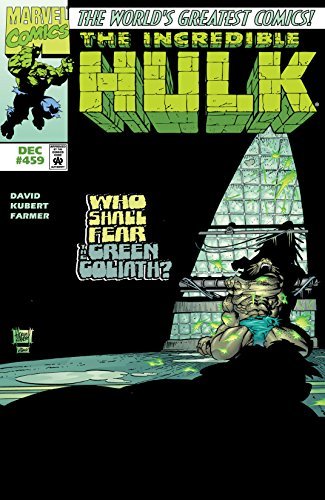
Incredible Hulk (1962-1999) #459
1997
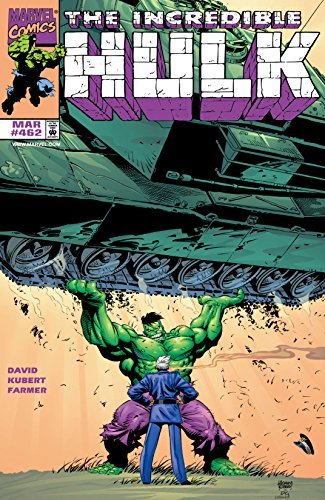
Incredible Hulk (1962-1999) #462
2016
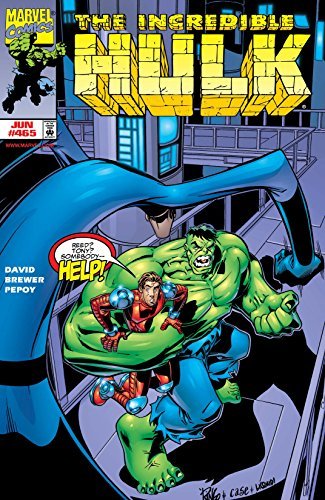
Incredible Hulk (1962-1999) #465
2016
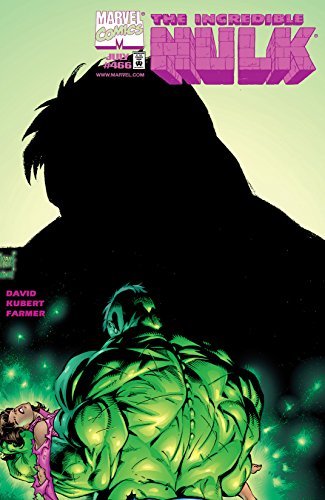
Incredible Hulk (1962-1999) #466
2016
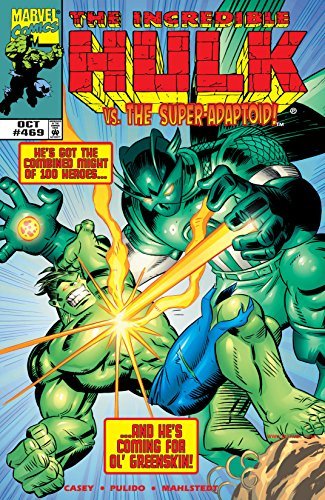
Incredible Hulk (1962-1999) #469
1962
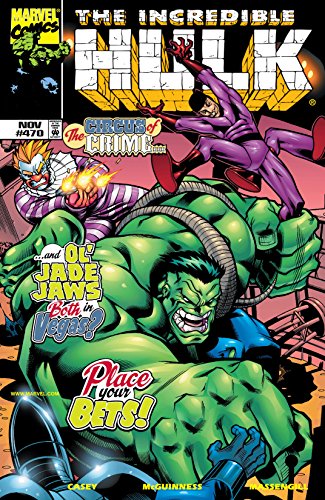
Incredible Hulk (1962-1999) #470
1998
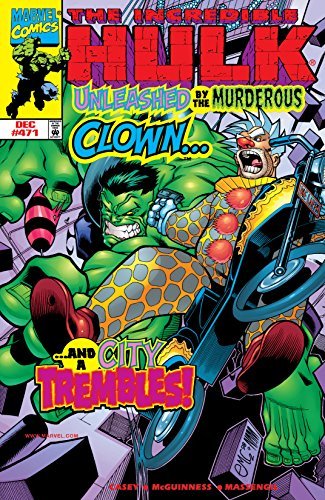
Incredible Hulk (1962-1999) #471
2016
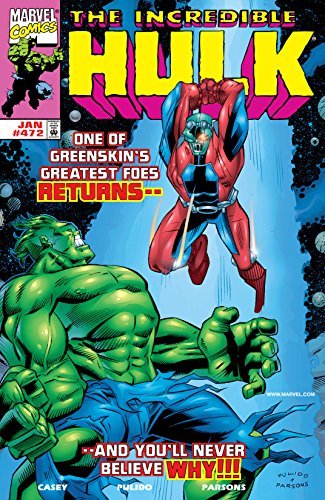
Incredible Hulk (1962-1999) #472
1999
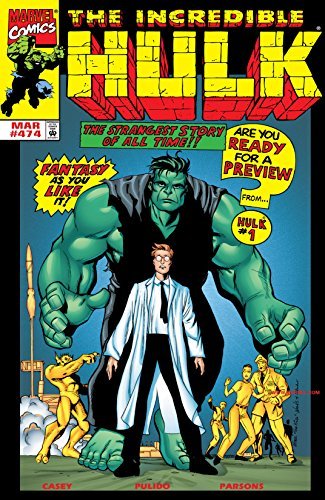
Incredible Hulk (1962-1999) #474
2016
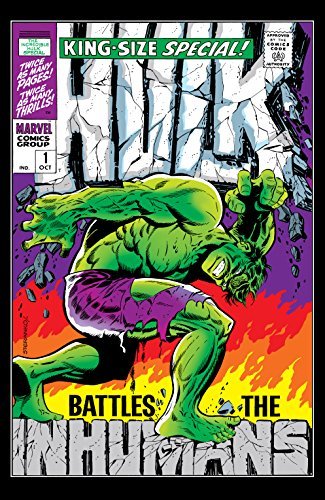
Incredible Hulk (1962-1999) Annual #1
2018
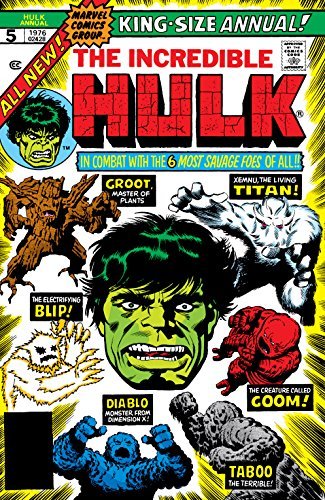
Incredible Hulk (1962-1999) Annual #5
1976
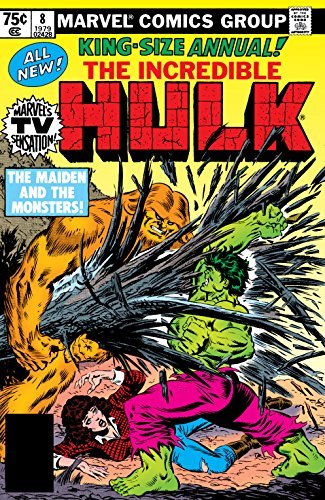
Incredible Hulk (1962-1999) Annual #8
2018
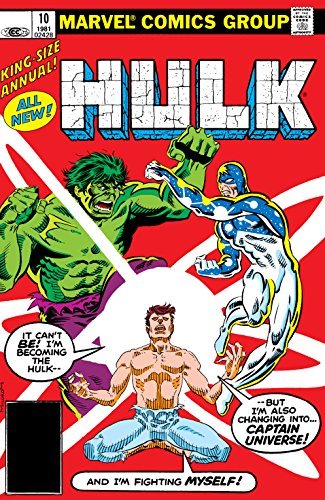
Incredible Hulk (1962-1999) Annual #10
2017
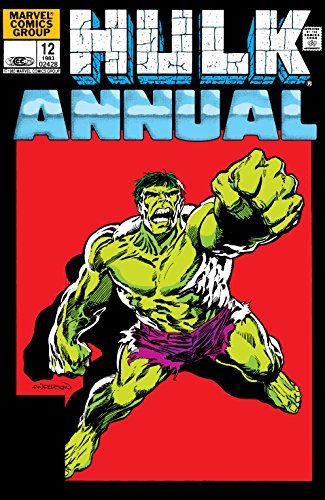
Incredible Hulk (1962-1999) Annual #12
1983
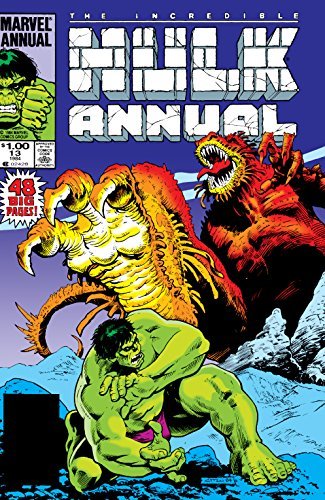
Incredible Hulk (1962-1999) Annual #13
1984
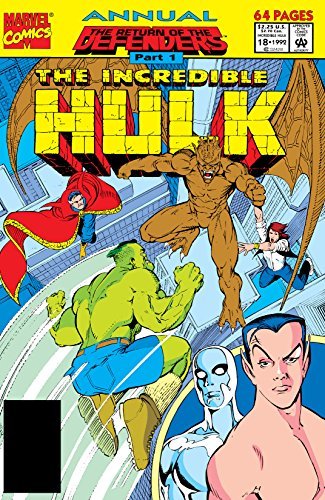
Incredible Hulk (1962-1999) Annual #18
2015
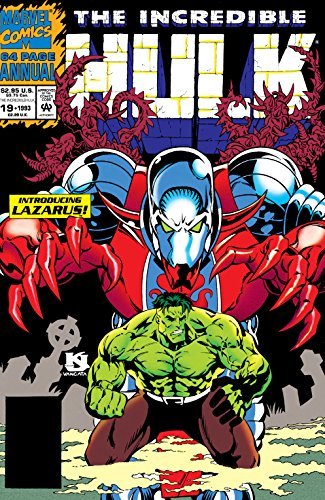
Incredible Hulk (1962-1999) Annual #19
2015
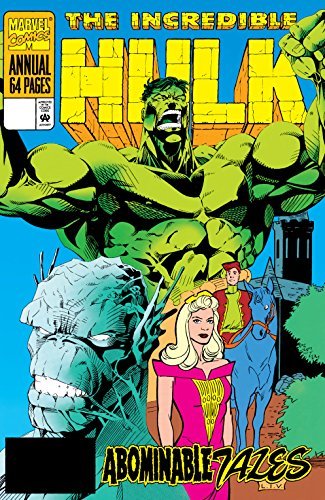
Incredible Hulk (1962-1999) Annual #20
2017

X-Men
Onslaught - The Complete Epic, Book 3
2008

X-Men Danger Room Battle Archives
1996

Marvel Masterworks
The Champions, Vol. 1
2016

Essential Warlock, Vol. 1
1977

Warlock
Marvel Masterworks, Vol. 1
2012

Incredible Hulk
Regression
1984
Authors


Tony Isabella is an American comic book writer, editor, artist and critic, known as the creator and writer of Marvel Comics' Black Goliath; DC Comics' first major African-American superhero, Black Lightning; and as a columnist and critic for the Comics Buyer's Guide. Contents

Joseph "Jeph" Loeb III is an Emmy and WGA nominated American film and television writer, producer and award-winning comic book writer. Loeb was a Co-Executive Producer on the NBC hit show Heroes, and formerly a producer/writer on the TV series Smallville and Lost. A four-time Eisner Award winner and five-time Wizard Fan Awards winner (see below), Loeb's comic book career includes work on many major characters, including Spider-Man, Batman, Superman, Hulk, Captain America, Cable, Iron Man, Daredevil, Supergirl, the Avengers, and Buffy the Vampire Slayer, much of which he has produced in collaboration with artist Tim Sale, who provides the comic art seen on Heroes.

Librarian note: There is more than one author in the GoodReads database with this name John Lindley Byrne is a British-born Canadian-American author and artist of comic books. Since the mid-1970s, Byrne has worked on nearly every major American superhero. Byrne's better-known work has been on Marvel Comics' X-Men and Fantastic Four and the 1986 relaunch of DC Comics’ Superman franchise. Coming into the comics profession exclusively as a penciler, Byrne began co-plotting the X-Men comics during his tenure on them, and launched his writing career in earnest with Fantastic Four (where he also started inking his own pencils). During the 1990s he produced a number of creator-owned works, including Next Men and Danger Unlimited. He also wrote the first issues of Mike Mignola's Hellboy series and produced a number of Star Trek comics for IDW Publishing.



Len Wein was an American comic book writer and editor best known for co-creating DC Comics' Swamp Thing and Marvel Comics' Wolverine, and for helping revive the Marvel superhero team the X-Men (including the co-creation of Nightcrawler, Storm, and Colossus). Additionally, he was the editor for writer Alan Moore and illustrator Dave Gibbons' influential DC miniseries Watchmen. Wein was inducted into the Will Eisner Comic Book Hall of Fame in 2008.


Paul Tobin is the Eisner-award winning, New York Times-bestselling author of Bandette, Colder, and many other comic books and graphic series. Bandette, drawn by Colleen Coover, was awarded the Eisner Award for Best Digital Series in 2013, 2016, and 2017; and was a finalist for the Oregon Book Award for Graphic Literature in 2016. His original graphic novel I Was the Cat was nominated for an Eisner in 2015. The Genius Factor: How to Capture an Invisible Cat , first in his five-book series of middle-grade books, came out in 2016 from Bloomsbury Kids. It was followed in 2017 by How To Outsmart A billion Robot Bees , and How To Tame A Human Tornado in March 2018.


Larry Hama is an American writer, artist, actor and musician who has worked in the fields of entertainment and publishing since the 1960s. During the 1970s, he was seen in minor roles on the TV shows M*A*S*H and Saturday Night Live, and appeared on Broadway in two roles in the original 1976 production of Stephen Sondheim's Pacific Overtures. He is best known to American comic book readers as a writer and editor for Marvel Comics, where he wrote the licensed comic book series G.I. Joe, A Real American Hero, based on the Hasbro action figures. He has also written for the series Wolverine, Nth Man: the Ultimate Ninja, and Elektra. He created the character Bucky O'Hare, which was developed into a comic book, a toy line and television cartoon.

Steve Gerber graduated from the University of Missouri with a degree in communications and took a job in advertising. To keep himself sane, he wrote bizarre short stories such as "Elves Against Hitler," "Conversion in a Terminal Subway," and "...And the Birds Hummed Dirges!" He noticed acquaintance Roy Thomas working at Marvel, and Thomas sent him Marvel's standard writing test, dialoguing Daredevil art. He was soon made a regular on Daredevil and Sub-Mariner, and the newly created Man-Thing, the latter of which pegged him as having a strong personal style—intellectual, introspective, and literary. In one issue, he introduced an anthropomorphic duck into a horror fantasy, because he wanted something weird and incongruous, and Thomas made the character, named for Gerber's childhood friend Howard, fall to his apparent death in the following issue. Fans were outraged, and the character was revived in a new and deeply personal series. Gerber said in interview that the joke of Howard the Duck is that "there is no joke." The series was existential and dealt with the necessities of life, such as finding employment to pay the rent. Such unusual fare for comicbooks also informed his writing on The Defenders. Other works included Morbius, the Lving Vampire, The Son of Satan, Tales of the Zombie, The Living Mummy, Marvel Two-in-One, Guardians of the Galaxy, Shanna the She-Devil, and Crazy Magazine for Marvel, and Mister Miracle, Metal Men, The Phantom Zone , and The Immortal Doctor Fate for DC. Gerber eventually lost a lawsuit for control of Howard the Duck when he was defending artist Gene Colan's claim of delayed paychecks for the series, which was less important to him personally because he had a staff job and Colan did not. He left comics for animation in the early 1980s, working mainly with Ruby-Spears, creating Thundarr the Barbarian with Alex Toth and Jack Kirby and episodes of The Puppy's Further Adventures, and Marvel Productions, where he was story editor on multiple Marvel series including Dungeons & Dragons, G.I. Joe, and The Transformers. He continued to dabble in comics, mainly for Eclipse, including the graphic novel Stewart the Rat, the two-part horror story "Role Model: Caring, Sharing, and Helping Others," and the seven-issue Destroyer Duck with Jack Kirby, which began as a fundraiser for Gerber's lawsuit. In the early 1990s, he returned to Marvel with Foolkiller, a ten-issue limited series featuring a new version of a villain he had used in The Man-Thing and Omega the Unknown, who communicated with a previous version of the character through internet bulletin boards. An early internet adopter himself, he wrote two chapters of BBSs for Dummies with Beth Woods Slick, with whom he also wrote the Star Trek: The Next Generation episode, "Contagion." During this period, he also wrote The Sensational She-Hulk and Cloak and Dagger for Marvel, Cybernary and WildC.A.T.s for Image, and Sludge and Exiles for the writer-driven Malibu Ultraverse, and Nevada for DC's mature readers Vertigo line. In 2002, he returned to the Howard the Duck character for Marvel's mature readers MAX line, and for DC created Hard Time with Mary Skrenes, with whom he had co-created the cult hit Omega the Unknown for Marvel. Their ending for Omega the Unknown remains a secret that Skrenes plans to take to the grave if Marvel refuses to publish it. Suffering from idiopathic pulmonary fibrosis ("idiopathic" meaning of unknown origin despite having been a heavy smoker much of his life), he was on a waiting list for a double lung transplant. His final work was the Doctor Fate story arc, "More Pain Comics," for DC Comics'


Roy Thomas was the FIRST Editor-in-Chief at Marvel—After Stan Lee stepped down from the position. Roy is a longtime comic book writer and editor. Thomas has written comics for Archie, Charlton, DC, Heroic Publishing, Marvel, and Topps over the years. Thomas currently edits the fanzine Alter Ego for Twomorrow's Publishing. He was Editor for Marvel comics from 1972-1974. He wrote for several titles at Marvel, such as Avengers, Thor, Invaders, Fantastic Four, X-Men, and notably Conan the Barbarian. Thomas is also known for his championing of Golden Age comic-book heroes—particularly the 1940s superhero team the Justice Society of America—and for lengthy writing stints on Marvel's X-Men and Avengers, and DC Comics' All-Star Squadron, among other titles. Also a legendary creator. Creations include Wolverine, Carol Danvers, Ghost Rider, Vision, Iron Fist, Luke Cage, Valkyrie, Morbius, Doc Samson, and Ultron. Roy has also worked for Archie, Charlton, and DC among others over the years.

Stan Lee (born Stanley Martin Lieber) was an American writer, editor, creator of comic book superheroes, and the former president and chairman of Marvel Comics. With several artist co-creators, most notably Jack Kirby and Steve Ditko, he co-created Spider-Man, the Fantastic Four, Thor as a superhero, the X-Men, Iron Man, the Hulk, Daredevil, the Silver Surfer, Dr. Strange, Ant-Man and the Wasp, Scarlet Witch, The Inhumans, and many other characters, introducing complex, naturalistic characters and a thoroughly shared universe into superhero comic books. He subsequently led the expansion of Marvel Comics from a small division of a publishing house to a large multimedia corporation.




John Romita, Sr. (often known as simply John Romita) was an Italian-American comic-book artist best known for his work on Marvel Comics' The Amazing Spider-Man. He was inducted into the Comic Book Hall of Fame in 2002. Romita was the father of John Romita, Jr., also a comic-book artist, and husband of Virginia Romita, for many years Marvel's traffic manager.
Marz is well known for his work on Silver Surfer and Green Lantern, as well as the Marvel vs DC crossover and Batman/Aliens. He also worked on the CrossGen Comics series Scion, Mystic, Sojourn, and The Path. At Dark Horse Comics he created Samurai: Heaven and Earth and various Star Wars comics. He has also done work for Devil’s Due Publishing’s Aftermath line, namely Blade of Kumori. In 1995, he had a brief run on XO-Manowar, for Valiant Comics. Marz’s more recent works includes a number of Top Cow books including Witchblade and a Cyberforce relaunch. For DC Comics, he has written Ion, a 12 part comic book miniseries that followed the Kyle Rayner character after the One Year Later event, and Tales of the Sinistro Corps Presents: Parallax and Tales of the Sinestro Corps Presents: Ion, two one-shot tie-ins to the Green Lantern crossover, The Sinestro Corps War. His current creator owned projects include “Dragon Prince” (Top Cow) and “Samurai : Heaven and Earth” (Dark Horse). Photo by Luigi Novi.

Fred Van Lente is the New York Times-bestselling author of comics as varied as Archer & Armstrong (Harvey Award nominee, Best Series), Taskmaster, MODOK's 11, Amazing Spider-Man, Conan the Avenger, Weird Detective, and Cowboys & Aliens (upon which the 2011 movie was based), as well as the novels Ten Dead Comedians and The Con Artist. Van Lente also specializes in entertaining readers with offbeat histories with the help of his incredibly talented artists. He has written the multiple-award winning Action Philosophers!, The Comic Book History of Comics, Action Presidents! (all drawn by Ryan Dunlavey), and The Comic Book Story of Basketball with Joe Cooper (Ten Speed September 2020). He lives in Brooklyn with his wife Crystal Skillman, and some mostly ungrateful cats.


Harlan Jay Ellison was a prolific American writer of short stories, novellas, teleplays, essays, and criticism. His literary and television work has received many awards. He wrote for the original series of both The Outer Limits and Star Trek as well as The Alfred Hitchcock Hour; edited the multiple-award-winning short story anthology series Dangerous Visions; and served as creative consultant/writer to the science fiction TV series The New Twilight Zone and Babylon 5. Several of his short fiction pieces have been made into movies, such as the classic "The Boy and His Dog". webmaster@harlanellison.com

See also John Harkness. Steve Englehart went to Wesleyan University in Middletown, Connecticut. After a stint in the Army, he moved to New York and began to write for Marvel Comics. That led to long runs on Captain America, The Hulk, The Avengers, Dr. Strange, and a dozen other titles. Midway through that period he moved to California (where he remains), and met and married his wife Terry. He was finally hired away from Marvel by DC Comics, to be their lead writer and revamp their core characters (Superman, Batman, Wonder Woman, Flash, and Green Lantern). He did, but he also wrote a solo Batman series (immediately dubbed the "definitive" version) that later became Warner Brothers' first Batman film (the good one). After that he left comics for a time, traveled in Europe for a year, wrote a novel (The Point Man™), and came back to design video games for Atari (E.T., Garfield). But he still liked comics, so he created Coyote™, which within its first year was rated one of America's ten best series. Other projects he owned (Scorpio Rose™, The Djinn™) were mixed with company series (Green Lantern [with Joe Staton], Silver Surfer, Fantastic Four). Meanwhile, he continued his game design for Activision, Electronic Arts, Sega, and Brøderbund. And once he and Terry had their two sons, Alex and Eric, he naturally told them stories. Rustle's Christmas Adventure was first devised for them. He went on to add a run of mid-grade books to his bibliography, including the DNAgers™ adventure series, and Countdown to Flight, a biography of the Wright brothers selected by NASA as the basis for their school curriculum on the invention of the airplane. In 1992 Steve was asked to co-create a comics pantheon called the Ultraverse. One of his contributions, The Night Man, became not only a successful comics series, but also a television show. That led to more Hollywood work, including animated series such as Street Fighter, GI Joe, and Team Atlantis for Disney.

Stephen J. "Steve" Ditko was an American comic book artist and writer best known as the co-creator of the Marvel Comics heroes Spider-Man and Doctor Strange. He was inducted into the comics industry's Jack Kirby Hall of Fame in 1990, and into the Will Eisner Award Hall of Fame in 1994.

William Francis Messner-Loebs (born William Francis Loebs, Jr.) is an American comics artist and writer from Michigan, also known as Bill Loebs and Bill Messner-Loebs. His hyphenated surname is a combination of his and his wife Nadine's unmarried surnames. In the 1980s and 1990s he wrote runs of series published by DC Comics, Image Comics, Comico, and other comics publishers, including DC's superhero series Flash and Wonder Woman among others. Additionally he has both written and drawn original creator-owned works, such as Journey: The Adventures of Wolverine MacAlistaire.

Scott Lobdell (born 1960) is an American comic book writer. He is mostly known for his work throughout the 1990s on Marvel Comics' X-Men-related titles specifically Uncanny X-Men, the main title itself, and the spin-off series that he conceived with artist Chris Bachalo, Generation X. Generation X focused on a number of young mutant students who attempted to become superheroes in their own right at a separate school with the guidance of veteran X-related characters Banshee and Emma Frost. He also had writing stints on Marvel's Fantastic Four, Alpha Flight, and The Adventures of Cyclops and Phoenix mini-series with artist Gene Ha. He wrote the script to Stan Lee's Mosaic and an upcoming film from POW Entertainment featuring Ringo Starr. He also participated in the Marvel Comics and Image Comics (from Jim Lee's WildStorm) crossover mini-series WildC.A.T.s/X-Men.


James P. "Jim" Starlin is an American comic book writer and artist. With a career dating back to the early 1970s, he is best known for "cosmic" tales and space opera; for revamping the Marvel Comics characters Captain Marvel and Adam Warlock; and for creating or co-creating the Marvel characters Thanos and Shang-Chi, Master of Kung Fu. Death and suicide are recurring themes in Starlin's work: Personifications of Death appeared in his Captain Marvel series and in a fill-in story for Ghost Rider; Warlock commits suicide by killing his future self; and suicide is a theme in a story he plotted and drew for The Rampaging Hulk magazine. In the mid-1970s, Starlin contributed a cache of stories to the independently published science-fiction anthology Star Reach. Here he developed his ideas of God, death, and infinity, free of the restrictions of mainstream comics publishers' self-censorship arm, the Comics Code Authority. Starlin also drew "The Secret of Skull River", inked by frequent collaborator Al Milgrom, for Savage Tales #5 (July 1974). When Marvel Comics wished to use the name of Captain Marvel for a new, different character,[citation needed] Starlin was given the rare opportunity to produce a one-shot story in which to kill off a main character. The Death of Captain Marvel became the first graphic novel published by the company itself. ( In the late 1980s, Starlin began working more for DC Comics, writing a number of Batman stories, including the four-issue miniseries Batman: The Cult (Aug.-Nov. 1988), and the storyline "Batman: A Death in the Family", in Batman #426-429 (Dec. 1988 – Jan. 1989), in which Jason Todd, the second of Batman's Robin sidekicks, was killed. The death was decided by fans, as DC Comics set up a hotline for readers to vote on as to whether or not Jason Todd should survive a potentially fatal situation. For DC he created Hardcore Station.


Todd McFarlane is a Canadian comic book artist, writer, toy manufacturer/designer, and media entrepreneur who is best known as the creator of the epic occult fantasy series Spawn. In the late 1980s and early 1990s, McFarlane became a comic book superstar due to his work on Marvel Comics' Spider-Man franchise. In 1992, he helped form Image Comics, pulling the occult anti-hero character Spawn from his high school portfolio and updating him for the 1990s. Spawn was one of America's most popular heroes in the 1990's and encouraged a trend in creator-owned comic book properties. In recent years, McFarlane has illustrated comic books less often, focusing on entrepreneurial efforts, such as McFarlane Toys and Todd McFarlane Entertainment, a film and animation studio. In September, 2006, it was announced that McFarlane will be the Art Director of the newly formed 38 Studios, formerly Green Monster Games, founded by Curt Schilling. McFarlane used to be co-owner of National Hockey League's Edmonton Oilers but sold his shares to Daryl Katz. He's also a high-profile collector of history-making baseballs.

Dennis "Denny" O'Neil was a comic book writer and editor best known for his work for Marvel Comics and DC Comics from the 1960s through the 1990s, and Group Editor for the Batman family of titles until his retirement. His best-known works include Green Lantern/Green Arrow and Batman with Neal Adams, The Shadow with Michael Kaluta and The Question with Denys Cowan. As an editor, he is principally known for editing the various Batman titles. From 2013 unti his death, he sat on the board of directors of the charity The Hero Initiative and served on its Disbursement Committee.

aka David Peters Peter Allen David (often abbreviated PAD) is an American writer, best known for his work in comic books and Star Trek novels. David often jokingly describes his occupation as "Writer of Stuff". David is noted for his prolific writing, characterized by its mingling of real world issues with humor and references to popular culture. He also uses metafiction frequently, usually to humorous effect, as in his work on the comic book Young Justice.

Pseudonyms: Howard Lee; Frank S Shawn; Kenneth Robeson; Con Steffanson; Josephine Kains; Joseph Silva; William Shatner. Ron Goulart is a cultural historian and novelist. Besides writing extensively about pulp fiction—including the seminal Cheap Thrills: An Informal History of Pulp Magazines (1972)—Goulart has written for the pulps since 1952, when the Magazine of Fantasy & Science Fiction published his first story, a sci-fi parody of letters to the editor. Since then he has written dozens of novels and countless short stories, spanning genres and using a variety of pennames, including Kenneth Robeson, Joseph Silva, and Con Steffanson. In the 1990s, he became the ghostwriter for William Shatner’s popular TekWar novels. Goulart’s After Things Fell Apart (1970) is the only science-fiction novel to ever win an Edgar Award. In the 1970s Goulart wrote novels starring series characters like Flash Gordon and the Phantom, and in 1980 he published Hail Hibbler, a comic sci-fi novel that began the Odd Jobs, Inc. series. Goulart has also written several comic mystery series, including six books starring Groucho Marx. Having written for comic books, Goulart produced several histories of the art form, including the Comic Book Encyclopedia (2004).

Kurt Busiek is an American comic book writer notable for his work on the Marvels limited series, his own title Astro City, and his four-year run on Avengers. Busiek did not read comics as a youngster, as his parents disapproved of them. He began to read them regularly around the age of 14, when he picked up a copy of Daredevil #120. This was the first part of a continuity-heavy four-part story arc; Busiek was drawn to the copious history and cross-connections with other series. Throughout high school and college, he and future writer Scott McCloud practiced making comics. During this time, Busiek also had many letters published in comic book letter columns, and originated the theory that the Phoenix was a separate being who had impersonated Jean Grey, and that therefore Grey had not died—a premise which made its way from freelancer to freelancer, and which was eventually used in the comics. During the last semester of his senior year, Busiek submitted some sample scripts to editor Dick Giordano at DC Comics. None of them sold, but they did get him invitations to pitch other material to DC editors, which led to his first professional work, a back-up story in Green Lantern #162 (Mar. 1983). Busiek has worked on a number of different titles in his career, including Arrowsmith, The Avengers, Icon, Iron Man, The Liberty Project, Ninjak, The Power Company, Red Tornado, Shockrockets, Superman: Secret Identity, Thunderbolts, Untold Tales of Spider-Man, JLA, and the award-winning Marvels and the Homage Comics title Kurt Busiek's Astro City. In 1997, Busiek began a stint as writer of Avengers alongside artist George Pérez. Pérez departed from the series in 2000, but Busiek continued as writer for two more years, collaborating with artists Alan Davis, Kieron Dwyer and others. Busiek's tenure culminated with the "Kang Dynasty" storyline. In 2003, Busiek re-teamed with Perez to create the JLA/Avengers limited series. In 2003, Busiek began a new Conan series for Dark Horse Comics, which he wrote for four years. In December 2005 Busiek signed a two-year exclusive contract with DC Comics. During DC's Infinite Crisis event, he teamed with Geoff Johns on a "One Year Later" eight-part story arc (called Up, Up and Away) that encompassed both Superman titles. In addition, he began writing the DC title Aquaman: Sword of Atlantis from issues 40-49. Busiek was the writer of Superman for two years, before followed by James Robinson starting from Superman #677. Busiek wrote a 52-issue weekly DC miniseries called Trinity, starring Batman, Superman and Wonder Woman. Each issue (except for issue #1) featured a 12-page main story by Busiek, with art by Mark Bagley, and a ten-page backup story co-written by Busiek and Fabian Nicieza, with art from various artists, including Tom Derenick, Mike Norton and Scott McDaniel. Busiek's work has won him numerous awards in the comics industry, including the Harvey Award for Best Writer in 1998 and the Eisner Award for Best Writer in 1999. In 1994, with Marvels, he won Best Finite Series/Limited Series Eisner Award and the Best Continuing or Limited Series Harvey Award; as well as the Harvey Award for Best Single Issue or Story (for Marvels #4) in 1995. In 1996, with Astro City, Busiek won both the Eisner and Harvey awards for Best New Series. He won the Best Single Issue/Single Story Eisner three years in a row from 1996–1998, as well as in 2004. Busiek won the Best Continuing Series Eisner Award in 1997–1998, as well as the Best Serialized Story award in 1998. In addition, Astro City was awarded the 1996 Best Single Issue or Story Harvey Award, and the 1998 Harvey Award for Best Continuing or Limited Series. Busiek was given the 1998 and 1999 Comics Buyer's Guide Awards for Favorite Writer, with additional nominations in 1997 and every year from 2000 to 2004. He has also received numerous Squiddy Awards, having been selected as favorite writer four years in a row from 1995 to 1998,

Ann Nocenti is most noted as an editor for Marvel Comics, for whom she edited New Mutants and The Uncanny X-Men. She made her comics writing debut on a brief run of Spider-Woman (#47-50) and subsequently wrote a long run of Daredevil (1st series) #236-291 (minus #237) from 1986 to 1991, directly following on from Frank Miller's definitive Born Again storyline. She also wrote the 1986 Longshot limited series for Marvel, and in the same year produced the Someplace Strange graphic novel in collaboration with artist John Bolton. She wrote "the Inhumans Graphic Novel" in 1988. In 1993, she wrote the 16-issue run of Kid Eternity for the DC Comics imprint Vertigo. In Incredible Hulk #291, published in September 1983 (cover date January 1984), Ann Nocenti made a cameo appearance, talking to Dr. Bruce Banner, in a history written by Bill Mantlo, drawn by Sal Buscema and inked by Carlos Garzón and Joe Sinnot. That time Ann Nocenti was Assistant Editor for Larry Hama on Incredible Hulk and X-Men. She is noted for her left-wing political views which, particularly during her run on Daredevil, caused some controversy among some fans who didn't agree with her politics. She created several popular characters, including Typhoid Mary, Blackheart, Longshot and Mojo, and wrote the 1998 X-Men novel Prisoner X. Although Nocenti left comic books in the '90s after the industry sales collapsed, she later returned to the field, penning stories such as 2004's Batman & Poison Ivy: Cast Shadows. In Ultimate X-Men, a reimagination of the X-Men comic, the character Longshot, who was invented by her, has the civil name Arthur Centino. His last name, Centino, is an anagram of Nocenti and a homage to Nocenti. The name Arthur is for the co-creator of Longshot Arthur Adams who was Ann Nocenti's artist on the Longshot Mini Series. She edited High Times magazine for one year (2004) under the name Annie Nocenti and is the former editor of the screenwriting magazine Scenario.

Chris Claremont is a writer of American comic books, best known for his 16-year (1975-1991) stint on Uncanny X-Men, during which the series became one of the comic book industry's most successful properties. Claremont has written many stories for other publishers including the Star Trek Debt of Honor graphic novel, his creator-owned Sovereign Seven for DC Comics and Aliens vs Predator for Dark Horse Comics. He also wrote a few issues of the series WildC.A.T.s (volume 1, issues #10-13) at Image Comics, which introduced his creator-owned character, Huntsman. Outside of comics, Claremont co-wrote the Chronicles of the Shadow War trilogy, Shadow Moon (1995), Shadow Dawn (1996), and Shadow Star (1999), with George Lucas. This trilogy continues the story of Elora Danan from the movie Willow. In the 1980s, he also wrote a science fiction trilogy about female starship pilot Nicole Shea, consisting of First Flight (1987), Grounded! (1991), and Sundowner (1994). Claremont was also a contributor to the Wild Cards anthology series.

Librarian note: there is more than one author with this name Joe Casey is an American comic book writer. He has worked on titles such as Wildcats 3.0, Uncanny X-Men, The Intimates, Adventures of Superman, and G.I. Joe: America's Elite among others. As part of the comics creator group Man of Action Studios, Casey is one of the creators of the animated series Ben 10. http://en.wikipedia.org/wiki/Joe\_Casey







